'1984' Characters
Descriptions and Analysis

Winston Smith
Mr. charrington, big brother, emmanuel goldstein.
:max_bytes(150000):strip_icc():format(webp)/JS800-800-5b70ad0c46e0fb00501895cd.jpg)
- B.A., English, Rutgers University
In 1984 , George Orwell’s characters seek freedom within a strictly controlled government system. While outwardly complying with the Party's rules and conventions, they dream of a rebellion they are too afraid and restricted to pursue. In the end, they are pieces on a board played by the government. Explore these characters with discussion questions .
Winston is a 39-year old man who works at the Ministry of Truth, where his job is to alter the historical record to match the government's official propaganda. Outwardly, Winston Smith is a meek and obedient member of The Party. He carefully practices his facial expressions and is always conscious of being watched, even in his apartment. However, his internal monologue is seditious and revolutionary.
Winston is just old enough to remember a time before the current regime. He idolizes the past and revels in the few details he can still remember. Whereas younger people have no memory of any other society and thus function as ideal cogs in The Party's machine, Winston remembers the past and supports The Party only out of fear and necessity. Physically, Winston looks older than he is. He moves stiffly and with a bent back. He is in poor health overall, though without any specific disease.
Winston is often arrogant. He imagines that the proles are the key to overthrowing the government and he romanticizes their lives without knowing much about their reality. He is also eager to believe that he has been recruited by the Brotherhood, despite his relative lack of importance. Orwell uses Winston to demonstrate that passive rebellion merely makes the rebel part of the system he wants to subvert, thus dooming him to serve it in one way or another. Rebellion and oppression are just two sides of the same dynamic. Winston is thus doomed to betray the Party and to be exposed, arrested, tortured, and broken. His fate is inescapable because he relies on the mechanisms provided to him instead of forging his own path
Julia is a young woman who works at the Ministry of Truth. Like Winston, she secretly despises the Party and the world it has shaped around her, but outwardly behaves as a dutiful and content member of the Party. Unlike Winston, Julia’s rebellion is centered not on revolution or changing the world, but on personal desires. She wishes for the freedom to enjoy her sexuality and her existence as she pleases, and sees her private resistance as a path towards those goals.
Just as she pretends to be a loyal citizen, Julia is also pretending to be a fervent revolutionary when she and Winston are contacted by the Brotherhood. She has little sincere interest in these goals, but goes along because it is the only avenue of freedom open to her. It is telling that at the end, after her own torture and breaking, she is an empty vessel devoid of emotion and yet harbors a strong dislike for Winston, who she once professed to love and saw as a path to her own liberation.
Julia is actually very unsuitable to Winston in terms of romance or sexuality. Like Winston, she is not nearly as free as she believes herself to be, and is constrained completely by the choices society puts in front of her. Julia invents her love for Winston as a way of convincing herself that her relationship with him is genuine and the result of her own choices.
O’Brien is initially introduced as Winston’s superior at the Ministry and a high-ranking member of the Party. Winston suspects that O’Brien sympathizes with the resistance, and is thrilled when he discovers (or believes he discovers) that O’Brien is a member of the Brotherhood. O’Brien later appears at Winston’s jail cell and participates in Winston’s torture, and tells Winston that he purposely lured Winston into betrayal.
O’Brien is an unreal character; virtually anything the reader believes they learn about him is later revealed to be a lie. As a result, the reader actually knows nothing about O’Brien at all. He is a completely unreliable character. In this he is actually representative of the universe Orwell is imagining, a world where nothing is true and everything is a lie. In the universe of 1984 , it is impossible to know if The Brotherhood and its leader Emmanuel Goldstein actually exist or if they are simply pieces of propaganda used to control the population. Similarly, we cannot know if there is an actual "Big Brother," an individual or even an oligarchy that rules Oceania.
O’Brien’s emptiness as a character is thus purposeful: He is as unreal, changeable, and ultimately mindlessly cruel as the world he represents.
Winston’s co-worker at the Ministry working on a new edition of the Newspeak dictionary is the closest thing to a friend that Winston has. Syme is intelligent and yet seems satisfied with his lot, finding his work interesting. Winston predicts he will disappear because of his intelligence, which turns out to be correct. Aside from demonstrating to the reader how society works in the novel, Syme is also an interesting contrast to Winston: Syme is intelligent, and thus dangerous and is never seen again, while Winston is allowed back into society after he is broken, because Winston never actually represented any real danger.
Appearing initially as a kind old man who rents Winston a private room and sells him some interesting antiques, Mr. Charrington is later revealed to be a member of the Thought Police who has been setting Winston up for arrest from the very beginning. Charrington thus contributes to the level of deception that the Party engages in and to the fact that Winston and Julia’s fates are completely controlled from the very beginning.
The symbol of The Party, a middle-aged man depicted on posters and other official materials, there is no certainty that Big Brother actually exists as a person in Orwell's universe. It is very likely he is an invention and a propaganda tool. His main presence in the novel is as a looming figure on posters, and as part of the mythology of the Party, as "Big Brother is Watching You." What is interesting is that these ubiquitous posters strike those who support the Party as somewhat comforting, seeing Big Brother as a protective uncle, while people like Winston see him as an ominous, threatening figure.
The leader of The Brotherhood, the resistance organization working to foment revolution against the Party. Like Big Brother, Emmanuel Goldstein seems to be an invention used to trap resistors like Winston, although it is possible he does exist, or did exist and has been co-opted by the Party. The lack of certainty is emblematic of the way the Party has corrupted knowledge and objective facts, and the same disorientation and confusion experienced by Winston and Julia in regards to Goldstein's existence or nonexistence is felt by the reader. This is a particularly effective technique that Orwell uses in the novel.
- '1984' Study Guide
- '1984' Summary
- '1984' Themes, Symbols, and Literary Devices
- '1984' Quotes Explained
- "Who Controls the Past Controls the Future" Quote Meaning
- '1984' Questions for Study and Discussion
- What Is an Antagonist?
- Margaret Thatcher
- 10 Classic Novels for Teens
- What Is Resolution in Literature?
- Julia Ward Howe Biography
- Anne Hutchinson: Religious Dissident
- Anne Hutchinson Quotes
- Biography of Hu Jintao, Former General Secretary of China
- The Women of Shakespeare's Richard III
- Aurelia Cotta, Mother of Julius Caesar

1984 Character List – 1984 Character Analysis
Home » Literature Explained – Literary Synopses and Book Summaries » 1984 Book » 1984 Character List – 1984 Character Analysis
1984 Main Characters – Introduction
The novel’s main character is Winston Smith. He is the protagonist as well as the narrator. He can also be considered the story’s hero as he represents a force of relative “good” in the face of “evil” and fights against it, even though he does not come out victorious. The novel’s antagonist would be the oppressive government that controls all people. The Thought Police are the portion of this government that actively spy on and set Winston up for rebellious acts and they are the ultimate cause of his downfall.
1984 Character List
Here is an overview of the main characters in 1984 .
- 1984 Protagonist/Hero – Winston Smith
- 1984 Antagonist/Villain – The Thought Police
- 1984 Narrator – Winston Smith
Winston Smith Description
Winston Smith – Winton is the novel’s protagonist/hero as well as the narrator. He represents the fear and oppression that citizens can feel under a totalitarian government as well as the inherent spark to fight back against that oppression. As the novel progresses, Winston finds it more and more difficult to resist the urge to fight back against the government’s stifling of his individuality as well as his desire to love freely and find purpose in life beyond his government-required work. Winston is thoughtful and commit several acts of defiance from small things like writing anti-Big Brother journal entries to having an illegal love affair. Ultimately, Winston represents everything that The Party (the oppressive government) wishes to suppress to prevent uprisings.
Julia Description
Julia – Winston’s secret lover. Julia is more pragmatic against Winston’s impulsive and emotional nature. She is sensual and does her best to truly just live in the moment, finding whatever pieces of pleasure she can in the world she is forced to live in. When Winston tries to convince Julia to join opposition groups, she shows that she is more concerned with day-to-day activities that can, even in small parts, defy The Party without getting caught.
Big Brother Description
Big Brother – The ruler of the nation, Oceania. He is the leader of the revolution that allowed The Party to come to power as rules and created a new government. Big Brother is used by The Party as a symbol that they are always watching, monitoring, and controlling. The city has giant posters that read “Big Brother is watching you.” Big Brother is not a physical character in the novel, but rather more of a concept that represents the government’s oppressive nature.
O’Brien Description
O’Brien – The mysterious member of the Inner Party who potentially used to be rebellious like Winston but fell to the control of The Party. Earlier on in the novel, O’Brien tends to sympathize with Winston but there is never a clear indication as to why. Although O’Brien seemed to be a trustworthy character due to his sympathizing with Winston, it turns out that he is actually one of Inner Party members when he shows up at Winston’s jail cell to torture him into submission. He represents the obscurity of the Inner Party and the idea that nobody can be trusted.
Mr. Charrington Description
Mr. Charrington – The old man who owns the secondhand shop where Winston buys several things that contribute to his anti-Party development such as his journal. Winston thinks that Mr. Charrington used to be an artist before the revolution and trusts him to the point that he rents a room from him to use as a meeting place for his affair with Julia. Mr. Charrington’s shop and room are in the lower class “prole” district, which is relatively unmonitored, so Winston feels safe. However, Mr. Charrington is a member of the Thought Police and ultimately sparks Winston’s downfall by turning him in.
Syme Description
Syme – An outgoing coworker of Winston’s at the Ministry of Truth. Syme is working on a new version of the Newspeak dictionary, which is an altered dictionary that removes any language that could be anti-Party.
Emmanuel Goldstein Description
Emmanuel Goldstein – Although he is not actually in the novel, he is a legendary leader of an anti-Party movement that provides inspiration to Winston.
Parsons Description
Parsons – Another coworker of Winston’s in the Ministry of Truth. He is dull and his children are members of the Junior Spies. He represents everything that The Party wants out of their citizens—unimaginative, dull, and obedient.
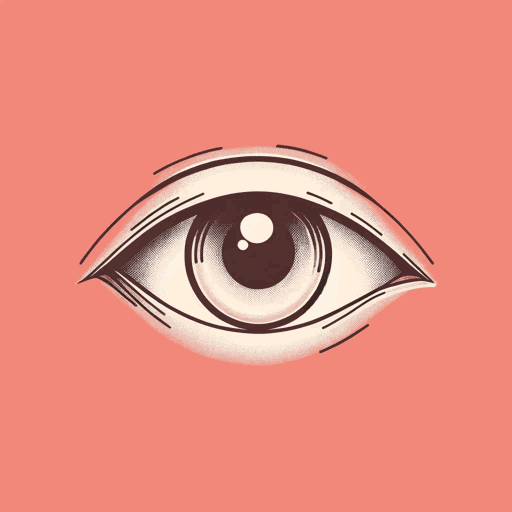
88 pages • 2 hours read
A modern alternative to SparkNotes and CliffsNotes, SuperSummary offers high-quality Study Guides with detailed chapter summaries and analysis of major themes, characters, and more. For select classroom titles, we also provide Teaching Guides with discussion and quiz questions to prompt student engagement.
Chapter Summaries & Analyses
Part 1, Chapter 1
Part 1, Chapters 2-4
Part 1, Chapters 5-6
Part 1, Chapters 7-8
Part 2, Chapters 1-4
Part 2, Chapters 5-8
Part 2, Chapter 9
Part 3, Chapters 1-5
Part 3, Chapter 6-Appendix
Character Analysis
Symbols & Motifs
Important Quotes
Essay Topics
Discussion Questions
Winston Smith
Winston Smith is the 39-year-old protagonist of the novel. He has a constantly-itching varicose ulcer on his ankle and is susceptible to coughing fits, physical ailments paralleling the dismay of London under Party rule. Winston is an Outer Party member, placing him below the Inner Party yet above the proletariat in the novel’s political and social hierarchy. Winston suspects life was better before the revolution and the rise of the Party’s power, but he knows the dangers of crossing the Party so remains diligent in his work and tries to keep the appearance of an obedient and unquestioning Party member.

Don't Miss Out!
Access Study Guide Now
Related Titles
By George Orwell

Animal Farm
George Orwell

Burmese Days

Coming Up for Air

Down and Out in Paris and London
Homage To Catalonia

Keep the Aspidistra Flying
Politics and the English Language

Shooting an Elephant

Such, Such Were the Joys
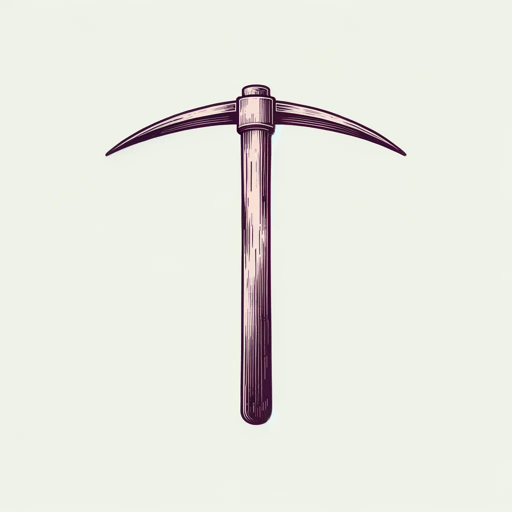
The Road to Wigan Pier

Why I Write
Featured Collections
Audio Study Guides
View Collection
Banned Books Week
British Literature
Brothers & Sisters
Fantasy & Science Fiction Books (High...
Goodreads Reading Challenge

A Summary and Analysis of George Orwell’s Nineteen Eighty-Four
By Dr Oliver Tearle (Loughborough University)
George Orwell’s Nineteen Eighty-Four , completed in 1948 and published a year later, is a classic example of dystopian fiction. Indeed, it’s surely the most famous dystopian novel in the world, even if its ideas are known by far more people than have actually read it. (According to at least one survey , Nineteen Eighty-Four is the book people most often claim to have read when they haven’t.)
Like many novels that are more known about than are carefully read and analysed, Nineteen Eighty-Four is actually a more complex work than the label ‘nightmare dystopian vision’ can convey. Before we offer an analysis of the novel’s themes and origins, let’s briefly recap the plot.
Nineteen Eighty-Four : plot summary
In the year 1984, Britain has been renamed Airstrip One and is a province of Oceania, a vast totalitarian superstate ruled by ‘the Party’, whose politics are described as Ingsoc (‘English Socialism’). Big Brother is the leader of the Party, which keeps its citizens in a perpetual state of fear and submission through a variety of means.
Surveillance is a key part of the novel’s world, with hidden microphones (which are found in the countryside as well as urban areas, and can identify not only what is said but also who says it) and two-way telescreen monitors being used to root out any dissidents, who disappear from society with all trace of their existence wiped out.
They become, in the language of Newspeak (the language used by people in the novel), ‘unpersons’. People are short of food, perpetually on the brink of starvation, and going about in fear for their lives.
The novel’s setting is London, where Trafalgar Square has been renamed Victory Square and the statue of Horatio Nelson atop Nelson’s Column has been replaced by one of Big Brother. Through such touches, Orwell defamiliarises the London of the 1940s which the original readers would have recognised, showing how the London they know might be transformed under a totalitarian regime.
The novel’s protagonist is Winston Smith, who works at the Ministry of Truth, rewriting historical records so they are consistent with the state’s latest version of history. However, even though his day job involves doing the work of the Party, Winston longs to escape the oppressive control of the Party, hoping for a rebellion.
Winston meets the owner of an antique shop named Mr Charrington, from whom he buys a diary in which he can record his true feelings towards the Party. Believing the working-class ‘proles’ are the key to a revolution, Winston visits them, but is disappointed to find them wholly lacking in any political understanding.
Meanwhile, hearing of the existence of an underground resistance movement known as the Brotherhood – which has been formed by the rival of Big Brother, a man named Emmanuel Goldstein – Winston suspects that O’Brien, who also works with him, is involved with this resistance.
At lunch with another colleague, named Syme, Winston learns that the English language is being rewritten as Newspeak so as to control and influence people’s thought, the idea being that if the word for an idea doesn’t exist in the language, people will be unable to think about it.
Winston meets a woman named Julia who works for the Ministry of Truth, maintaining novel-writing machines, but believes she is a Party spy sent to watch him. But then Julia passes a clandestine love message to him and the two begin an affair – which is itself illicit since the Party decrees that sex is for reproduction alone, rather than pleasure.
We gradually learn more about Winston’s past, including his marriage to Katherine, from whom he is now separated. Syme, who had been working on Newspeak, disappears in mysterious circumstances: something Winston had predicted.
O’Brien invites Winston to his flat, declaring himself – as Winston had also predicted – a member of the Brotherhood, the resistance against the Party. He gives Winston a copy of the book written by Goldstein, the leader of the Brotherhood.
When Oceania’s enemy changes during the ritual Hate Week, Winston is tasked with making further historical revisions to old newspapers and documents to reflect this change.
Meanwhile, Winston and Julia secretly read Goldstein’s book, which explains how the Party maintains its totalitarian power. As Winston had suspected, the secret to overthrowing the Party lies in the vast mass of the population known as the ‘proles’ (derived from ‘proletarian’, Marx’s term for the working classes). It argues that the Party can be overthrown if proles rise up against it.
But shortly after this, Winston and Julia are arrested, having been shopped to the authorities by Mr Charrington (whose flat above his shop they had been using for their illicit meetings). It turns out that both he and O’Brien work for the Thought Police, on behalf of the Party.
At the Ministry of Love, O’Brien tells Winston that Goldstein’s book was actually written by him and other Party members, and that the Brotherhood may not even exist. Winston endures torture and starvation in an attempt to grind him down so he will accept Big Brother.
In Room 101, a room in which a prisoner is exposed to their greatest fear, Winston is placed in front of a wire cage containing rats, which he fears above all else. Winston betrays Julia, wishing she could take his place and endure this suffering instead.
His reprogramming complete, Winston is allowed to go free, but he is essentially living under a death sentence: he knows that one day he will be summoned by the authorities and shot for his former treachery.
He meets Julia one day, and learns that she was subjected to torture at the Ministry of Love as well. They have both betrayed each other, and part ways. The novel ends with Winston accepting, after all, that the Party has won and that ‘he loved Big Brother.’
Nineteen Eighty-Four : analysis
Nineteen Eighty-Four is probably the most famous novel about totalitarianism, and about the dangers of allowing a one-party state where democracy, freedom of movement, freedom of speech, and even freedom of thought are all outlawed. The novel is often analysed as a warning about the dangers of allowing a creeping totalitarianism into Britain, after the horrors of such regimes in the Soviet Union, Nazi Germany, and elsewhere had been witnessed.
Because of this quality of the book, it is often called ‘prophetic’ and a ‘nightmare vision of the future’, among other things.
However, books set in the future are rarely simply about the future. They are not mere speculation, but are grounded in the circumstances in which they were written.
Indeed, we might go so far as to say that most dystopian novels, whilst nominally set in an imagined future, are really using their future setting to reflect on what are already firmly established social or political ideas. In the case of Orwell and Nineteen Eighty-Four , this means the novel reflects the London of the 1940s.
By the time he came to write the novel, Orwell already had a long-standing interest in using his writing to highlight the horrors of totalitarianism around the world, especially following his experience fighting in the Spanish Civil War in the 1930s. As Orwell put it in his essay ‘ Why I Write ’, all of his serious work written since 1936 was written ‘ against totalitarianism and for democratic socialism’.
In his analysis of Nineteen Eighty-Four in his study of Orwell, George Orwell (Reader’s Guides) , Jeffrey Meyers argues convincingly that, rather than being a nightmare vision of the future, a prophetic or speculative work, Orwell’s novel is actually a ‘realistic synthesis and rearrangement of familiar materials’ – indeed, as much of Orwell’s best work is.
His talent lay not in original imaginative thinking but in clear-headed critical analysis of things as they are: his essays are a prime example of this. Nineteen Eighty-Four is, in Meyer’s words, ‘realistic rather than fantastic’.
Indeed, Orwell himself stated that although the novel was ‘in a sense a fantasy’, it is written in the form of the naturalistic novel, with its themes and ideas having been already ‘partly realised in Communism and fascism’. Orwell’s intention, as stated by Orwell himself, was to take the totalitarian ideas that had ‘taken root’ in the minds of intellectuals all over Europe, and draw them out ‘to their logical consequences’.
Like much classic speculative fiction – the novels and stories of J. G. Ballard offer another example – the futuristic vision of the author is more a reflection of contemporary anxieties and concerns. Meyers goes so far as to argue that Nineteen Eighty-Four is actually the political regimes of Nazi Germany and Stalinist Russia ‘transposed’ into London of the early 1940s, during the Second World War.
Certainly, many of the most famous features of Nineteen Eighty-Four were suggested to Orwell by his time working at the BBC in London in the first half of the 1940s: it is well-known that the Ministry of Truth was based on the bureaucratic BBC with its propaganda department, while the infamous Room 101 was supposedly named after a room of that number in the BBC building, in which Orwell had to endure tedious meetings.
The technology of the novel, too, was familiar by the 1940s, involving little innovation or leaps of imagination from Orwell (‘telescreens’ being a natural extension of the television set: BBC TV had been established in 1936, although the Second World War pushed back its development somewhat).
Orwell learned much about the workings of Stalinism from reading Trotsky’s The Revolution Betrayed (1937), written by one of the leading figures in the Russian Revolution of 1917 who saw Stalinist Russia as the antithesis of what Trotsky, Lenin, and those early revolutionaries had been striving to achieve. (This would also be important for Orwell’s Animal Farm , of course.)
And indeed, many of the details surrounding censorship – the rewriting of history, the suppression of dissident literature, the control of the language people use to express themselves and even to think in – were also derived from Orwell’s reading of life in Soviet Russia. Surveillance was also a key element of the Stalinist regime, as in other Communist countries in Europe.
The moustachioed figure of Big Brother in Nineteen Eighty-Four recalls nobody so much as Josef Stalin himself. Not only the ideas of ‘thought crime’ and ‘thought police’, but even the terms themselves, predate Orwell’s use of them: they were first recorded in a 1934 book about Japan.
One of the key questions Winston asks himself in Nineteen Eighty-Four is what the Party is trying to achieve. O’Brien’s answer is simple: the maintaining of power for its own sake. Many human beings want to control other human beings, and they can persuade a worrying number of people to go along with their plans and even actively support them.
Despite the fact that they are starving and living a miserable life, many of the people in Airstrip One love Big Brother, viewing him not as a tyrannical dictator but as their ‘Saviour’ (as one woman calls him). Again, this detail was taken from accounts of Stalin, who was revered by many Russians even though they were often living a wretched life under his rule.
Another key theme of Orwell’s novel is the relationship between language and thought. In our era of fake news and corrupt media, this has only become even more pronounced: if you lie to a population and confuse them enough, you can control them. O’Brien introduces Winston to the work of the traitor to the Party, Emmanuel Goldstein, only to tell him later that Goldstein may not exist and his book was actually written by the Party.
Is this the lie, or was the book the lie? One of the most famous lines from the novel is Winston’s note to himself in his diary: ‘Freedom is the freedom to say that two plus two make four. If that is granted, all else follows.’
But later, O’Brien will force Winston to ‘admit’ that two plus two can make five. Orwell tells us, ‘The Party told you to reject the evidence of your eyes and ears.’
Or as Voltaire once wrote, ‘Truly, whoever is able to make you absurd is able to make you unjust.’ Forcing somebody to utter blatant falsehoods is a powerful psychological tool for totalitarian regimes because through doing so, they have chipped away at your moral and intellectual integrity.
4 thoughts on “A Summary and Analysis of George Orwell’s Nineteen Eighty-Four”
1984 is a novel which is great in spite of itself and has been lionised for the wrong reasons. The title of the novel is a simple anagram of 1948, the date when the novel was written, and was driven by Orwell’s paranoia about the 1945 Labour government in UK. Orwell, a public school man, had built a reputation for hiself in the nineteen thirties as a socialist writer, and had fought for socialism in the Spanish civil war. The Road To Wigan Pier is an excellent polemic attacking the way the UK government was handling the mass unemployment of the time, reducing workers to a state of near starvation. In Homage To Catalonia, Orwell describes his experiences fighting with a small Marxist militia against Franco’s fascists. It was in Spain that Orwell developed his lifelong hatred of Stalinism, observing that the Communist contingents were more interested in suppressing other left-wing factions than in defeating Franco. The 1945 Labour government ws Britain’s first democratically elected socialist governement. It successfully established the welfare state and the National Health Service in a country almost bankrupted by the war, and despite the fact that Truman in USA was demanding the punctual repayment of wartime loans. Instead of rejoicing, Orwell, by now terminally ill from tuberculosis, saw the necessary continuation of wartime austerity and rationing as a deliberate and unnecessary imposition. Consequently, the book is often used as propaganda against socialism. The virtues of the book are the warnings about the dangers of giving the state too much power, in the form of electronic surveillance, ehanced police powers, intrusive laws, and the insidious use of political propaganda to warp peoples’ thinking. All of this has come to pass in the West as well as the East, but because of the overtly anticommunist spin to Orwell’s novel, most people fail to get its important message..
As with other work here, another good review. I’m also fascinated that Orwell located the government as prime problem, whereas Huxley located the people as prime problem, two sides of the same coin.
- Pingback: Top 3 Historical Fiction Books – BookNook
- Pingback: 10 of the Best Books and Stories Set in the Future – Interesting Literature
Leave a Reply Cancel reply
Discover more from interesting literature.
Subscribe now to keep reading and get access to the full archive.
Type your email…
Continue reading

Sign Up Today
Start your 14 day free trial today
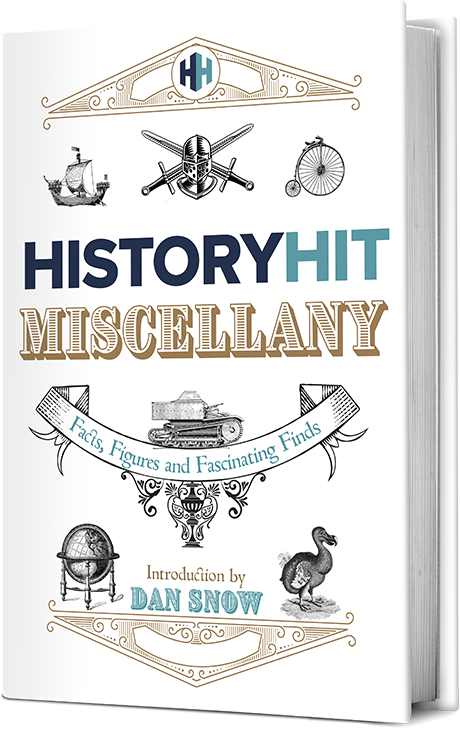
The History Hit Miscellany of Facts, Figures and Fascinating Finds
1984 by George Orwell – Key Characters Summary
Analysis of the 6 key characters in george orwell's dystopian novel about totalitarianism..

Lucy Davidson
03 jan 2022, @lucejuiceluce.
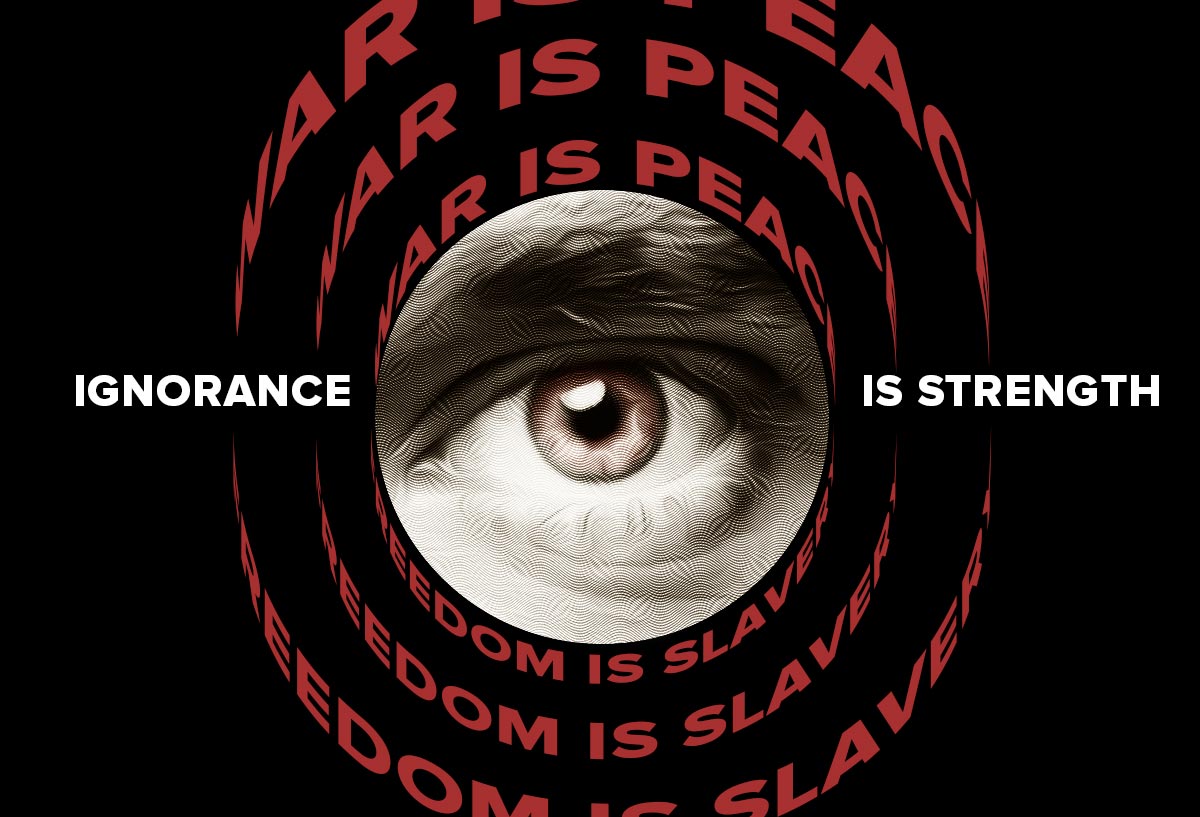
Published in 1949, George Orwell’s Nineteen Eighty-Four (also stylised as 1984 ) was Orwell’s ninth and final book completed in his lifetime. A dystopian science fiction novel and so-called ‘cautionary tale’, it explores themes of mass surveillance, totalitarianism, the repressive regimentation of people and their behaviours, torture, the manipulation of history and facts and the class system.
Here is an analysis of the 6 key characters of the book – Winston Smith, Julia, O’Brien, Big Brother and Emmanuel Goldstein – touching on their roles in the novel, and what they each represent.
Who is Winston Smith in Nineteen Eighty-Four and what does he represent?
Protagonist Winston Smith is a 39-year-old minor member of the Outer Party from London. Thin, intellectual and fatalistic, he works in the Records Department in the Ministry of Truth rewriting news articles to conform with the Party’s current political angle. Winston realises that the Party ultimately wants to dominate them all by controlling access to the past and minds of its citizens, and by purposefully inciting hatred and war as a way of diffusing any rebellious behaviour. Winston hates the Party and harbours revolutionary dreams; but most importantly, he wants to maintain a feeling of humanity amongst a society that tries to strip away all humanity from its citizens.
Orwell uses Winston’s internal, human, emotional reality as a foil against the external, collective identity that the totalitarian government seeks to enforce. He takes considerable personal risks, such as writing a diary and pursuing a relationship with Julia in the room above the antique shop. Ultimately, though Winston thinks that he can resist Party power, even in the face of torture, he is brainwashed into loving Big Brother, and has few independent thoughts of his own.
Who is Julia in Nineteen Eighty-Four and what does she represent?
Initially known as the ‘dark-haired girl’, Julia is Winston’s 26-year-old, sexually rebellious lover who works in the Fiction Department at the Ministry of Truth. It is revealed that she has had a string of lovers from the Party, and has a place called the hideout where she takes them.
She believes that the Party is impossible to overthrow, and that personal rebellious behaviour and secret disobedience is the sole effective form of revolt. She enjoys breaking the rules, which in turn encourages Winston to take increasingly significant risks. However, like Winston, she ultimately bends under the weight of Party manipulation when she is tortured, and she and Winston discontinue their relationship.
Who is O’Brien in Nineteen Eighty-Four and what does he represent?
A member of the Inner Party, O’Brien is a figure of intrigue for Winston from the beginning, who believes that he might harbour similar anti-Party sentiments. Though Winston initially trusts O’Brien and believes that he is genuinely part of a resistance movement, O’Brien later reveals himself to be a corrupt bureaucrat and member of the Inner Party, a symbol of dehumanising and dehumanised desire for absolute power and control.
He also explains many of the Party’s methods to maintain this power. Through O’Brien, Winston and Julia incriminate themselves. However, so powerful are O’Brien’s methods of manipulation that Winston comes to admire his intelligence and even worship him as a kind of saviour, even when O’Brien is inflicting horrible torture upon him.
Who is Big Brother in Nineteen Eighty-Four and what does he represent?
As the leader of the Party, Big Brother is an all-knowing, all-powerful figure who is also intangible and shrouded in mystery. It is never fully addressed who precisely Big Brother is, even though his face appears on coins and posters throughout Oceania. Orwell purposefully shrouds Big Brother in mystery as a way of demonstrating the power of a figurehead – constructed or otherwise – in making individuals more loyal to a party, since it is easier to direct love towards an individual than an organisation.
Who is Mr. Charrington in Nineteen Eighty-Four and what does he represent?
The elderly, seemingly harmless owner of the antique shop where Winston buys the diary and paperweight, he rents out a room above his shop to Winston and Julia so that they can conduct their affair in private. He lives in an area populated by proles, and with his mild-mannered exterior, discreet behaviour and apparent love and knowledge of the past, he appears trustworthy. However, he is actually a member of the Thought Police, and ensures that the lovers are arrested. His character demonstrates that even those who have links to the past can be manipulated into working for the Party; ultimately, nobody is trustworthy.
Who is Emmanuel Goldstein in Nineteen Eighty-Four and what does he represent?
The Leader of the Brotherhood, Emmanuel Goldstein’s name is used as an insult or slur amongst those who worship the Party. He is a hated enemy of Oceania, who is supposedly plotting to overthrow the government. However, though Winston and Julia are taken in by the belief that the Brotherhood exists – they even read a long book that advocates for revolution that is supposedly written by Goldstein – Orwell heavily implies that he is entirely made up as a method of Party propaganda to keep the populace alert, hateful and willing to incriminate others around them for supposedly hosting revolutionary ideas.
Read more of 1984
1984 – Part 1, Chapter 1 1984 – Part 1, Chapter 2 1984 – Part 1, Chapter 3 1984 – Part 1, Chapter 4 1984 – Part 1, Chapter 5 1984 – Part 1, Chapter 6 1984 – Part 1, Chapter 7 1984 – Part 1, Chapter 8 1984 – Part 2, Chapter 1 1984 – Part 2, Chapter 2 1984 – Part 2, Chapter 3 1984 – Part 2, Chapter 4 1984 – Part 2, Chapter 5 1984 – Part 2, Chapter 6 1984 – Part 2, Chapter 7 1984 – Part 2, Chapter 8 1984 – Part 2, Chapter 9 1984 – Part 2, Chapter 10 1984 – Part 3, Chapter 1 1984 – Part 3, Chapter 2 1984 – Part 3, Chapter 3 1984 – Part 3, Chapter 4 1984 – Part 3, Chapter 5 1984 – Part 3, Chapter 6 1984 – Appendix
For a broad summary of the novel and its central themes, click here .
You May Also Like
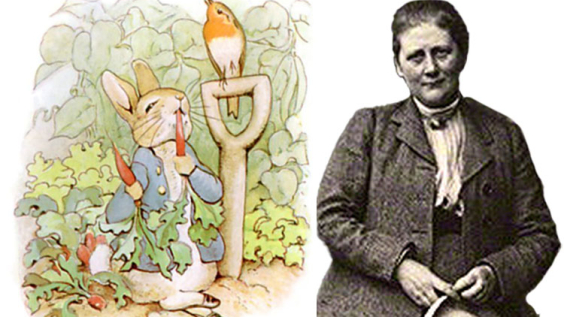
The Tale of Beatrix Potter: 10 Facts About The Iconic Illustrator & Children’s Author
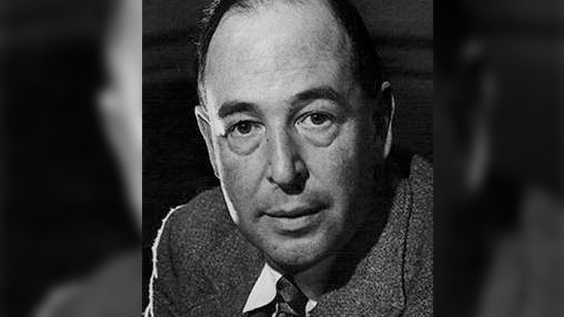
Beyond Narnia: The Enduring Legacy of C.S. Lewis
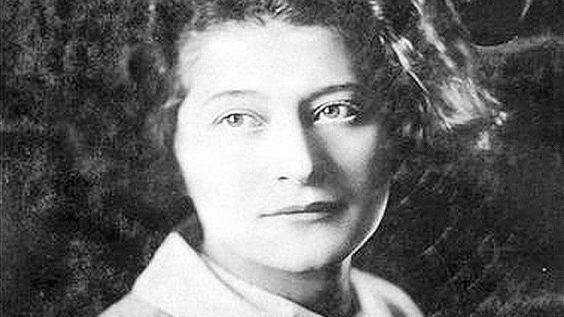
Margaret J. Winkler: A Forgotten Pioneer in Disney’s Success

Audrey Hepburn: From War-Torn Childhood to Hollywood Icon
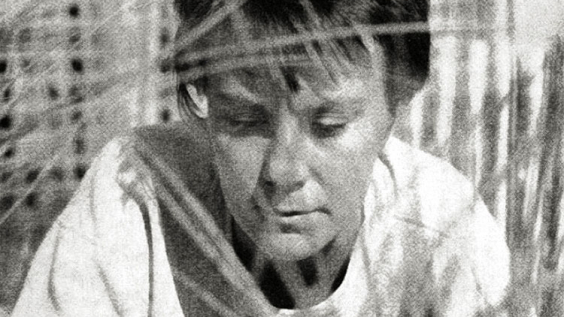
10 Facts About Harper Lee

How Did Barbie Become an Icon?
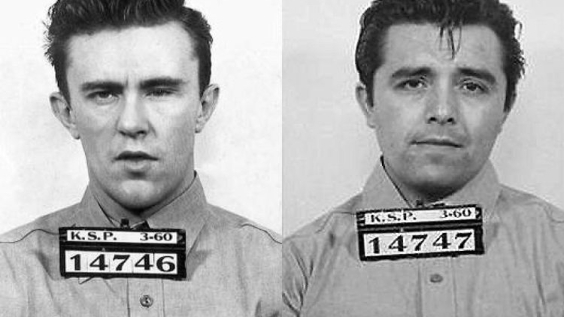
The Real Story Behind ‘In Cold Blood’: Truman Capote’s True Crime Masterpiece
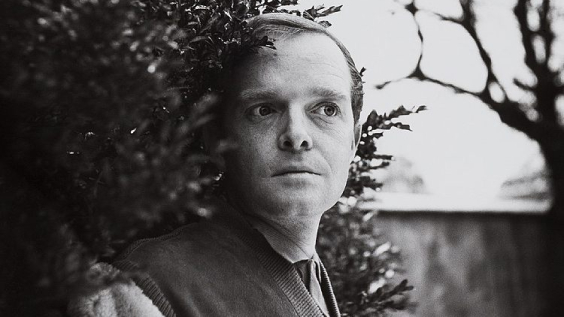
The Life and Times of Truman Capote: 10 Facts About the Literary Icon
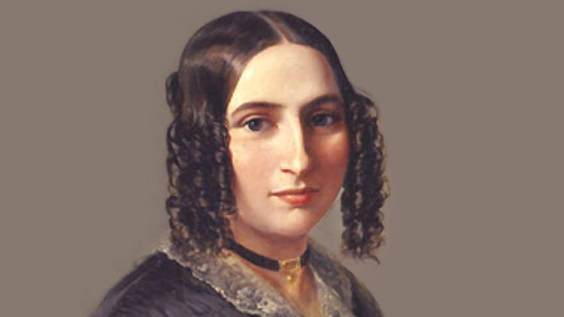
Fanny Mendelssohn: A Musical Prodigy and Forgotten Legacy
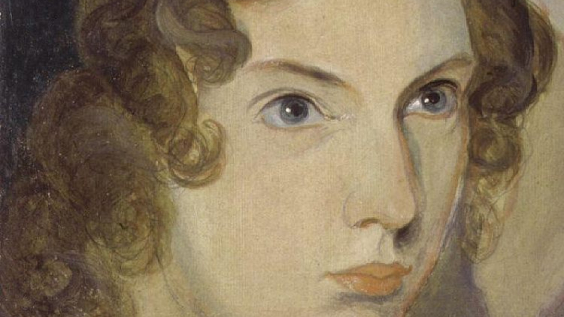

Anne Brontë: The Forgotten Sister Who Made a Mark on Victorian Literature
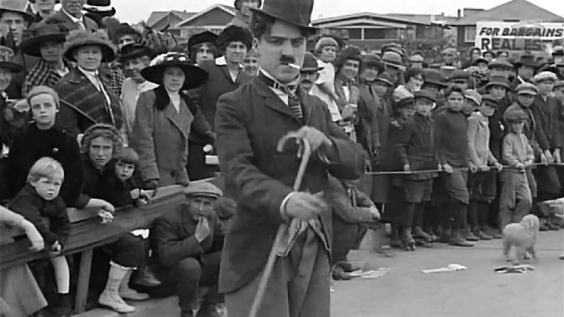
Why Was Charlie Chaplin Investigated by the FBI?
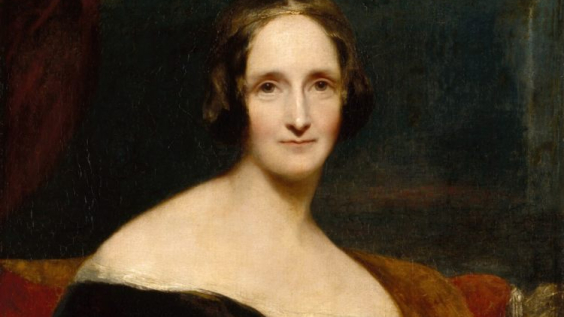
10 Facts About Mary Shelley: The Woman Behind Frankenstein
(92) 336 3216666
Read our complete notes on the novel “1984” by George Orwell. Our notes cover 1984 summary, characters, themes, and analysis.
Introduction
Nineteen Eighty-four is written by George Orwell. It was published in 1949 as 1984. The novel is a tale to warn the people against the backdrops of the totalitarian government. It was published by Secker and Warburg on 8th June 1949.
Yearning for the opportunity of freedom, a humble, Outer Circle administrator of the Ministry of Truth, Winston Smith, musters up the boldness to record his implicit wants in his little mysterious diary, in itself an unlawful demonstration. Serving quietly at the delight of the dismal, dictatorial hyper-province of Oceania, Smith acknowledges the INGSOC`s incomparable pioneer Big Brother who keeps a close eye on him.
The totalitarian government tightens its hold on its subject. Smith comes across Julia who is also a rebel and a dangerous affair starts. There’s no turning around. This couple has to pay at some point for their relationship. The waters of rebellions also start to boil and in the midst of the storm Smith changes his loyalty and turn into a supporter of the Party.
Historical Context of 1984
Orwell believed in socialism, the immediate consequence of his administration as a militiaman on the side of Republicans against Francisco Franco in the Spanish Civil War. Francisco was a Fascist. Upon his arrival in England, he became a member of the British Independent Labor Party and started to compose against the Nazi system and Stalinism.
Orwell was affected by rebels of Soviet socialism and by the Marxist compositions of Leon Trotsky, which modeled the ousted socialist progressive and model for Emmanuel Goldstein in Nineteen Eighty-Four. In 1946 Orwell stated that each line of genuine work that he has composed since 1936 has been composed, legitimately or in an indirect way, against despotism and for popularity based communism.
Inspiration for the Book
Before writing this novel, Orwell was inspired and impacted by the authoritarian systems of Stalin`s Soviet Union and Hitler’s Nazi Germany. The two systems celebrated their separate chiefs as gods. They also required to destroy the independence so as to advance the needs of the Party over the lives of individuals, requested supreme steadfastness from their residents, and turned to savagery at whatever point unfaithfulness was suspected.
In addition, the two systems reliably slandered their adversaries; similarly, as the Party and Big Brother do in 1984, through the Hate Week, Two Minutes Hate, and everyday propaganda through telescreens. Other similarities incorporate the Thought Police as a rehash of the Gestapo, NKVD which organized fear, and the Spies and Youth League as a reexamination of the Hitler Youth and the Little Octoberists, which inculcated youngsters to the Party and urged them to report dishonesty in subjects.
The Setting of the Novel
The action of this novel happens in London at some undefined time in the future. Although the city is mentioned, the version of the city presented is totally fictionalized. In this novel, London is the center of Airstrip One, which is part of the state of Oceania.
Oceania is among the three powers of this world, it consists of the Americas, Australasia, the Atlantic islands, British Isles and parts of Africa. The other is Eastasia consisting of Japan, China, Tibet and Mongolia. The third one is Eastasia that includes Northern Europe and Asiatic regions. The title shows that the novel is set in 1984.
London is partitioned in three particular social gatherings. The Inner Party lives in relative luxury with workers and access to extravagance products. The Outer Party, of which Winston is a part, lives in distinct, flimsy conditions with next to no influence over their own property. The most reduced social gathering is called the proles that live in ghettos where the Party doesn’t endeavor to apply a lot of control.
1984 Summary
It is the year 1984, Winston Smith who is the citizen of Oceania is living in Airstrip one also called Great Britain. Smith is a follower of a party. Winston has returned home during lunch-break. His apartment is located in Victory Mansion, the Party housing building. He has returned to his apartment because he wants to write his diary. The apartment is very small. It has a telescreen. This telecasts the propaganda and information of the Party. He lives in a place which has no privacy because big brother is watching all the people.
The party is ruling Oceania. This party follows a basic principle of English Socialism which is called Ignsoc. Oceania is governed under the rule of hierarchy and is a state of oligarchy. The party is led by Big Brother. The party has members who are divided into two different categories; at the first, there are ruling elites of the party, then comes to the members of the party, they are called regular members because they are the residents of Oceania.
The people who are very poor are not taken into the party and they live in their poverty. They are not bound by the regulations of the party. The city of London has various types of images and pictures of Big Brother displayed on the walls. The walls are inscribed with Big Brother is watching you. The Party has three slogans that say “war is peace,” “Freedom is slavery,” and Ignorance is strength.”
Winston loses his parents and sister in the period of revolution that ruined capitalism and established Ingsoc principles in Oceania. He grows in the orphanage of the Party. He is then selected into the Party. He serves the Party by working in the Record Department in the Ministry of Truth. This department is working on the propaganda of the Party. It also changes the old records so that the Party could not be questioned.
There are three more Ministries as well. One is the Ministry of Love; it deals with the prisoners of the Party. The second is the Ministry of Peace and it deals with wars. The third is the Ministry of Plenty and it deals with the goods of the Party.
Winston does not like the system of the Party and thinks that the system of the Party must be changed. The dilemma is that he cannot talk about it openly because there is a fear of death. He knows that this is a serious crime and the penalty is torture and death.
Winston writes a number of notes in his diary. He expresses all his anti-feelings about the party. He knows that this could have severe repercussions but he gives vent to his feelings in the diary. He is writing in a diary when someone knocks at his door. He gets frightened with the thought that he has been caught but it is his neighbor Mrs. Parsons. She needs some help and Winston happily helps her. She has two children and they are working for the Spies and Youth league of the Party.
Winston returns to write his diary but he is getting late and has to reach in time for his work. While working, he finds a newspaper clip that proves the innocence of the young men. When he examines the clip, he finds that the party is wrong in this case. This means that he has got the true evidence about the wrongdoings of the party. He then destroys the clip and stuck it in the internal furnace of the building.
Winston is always surrounded by members who are loyal to the Party and he keeps watch so that he could not be perceived by the others for his anti-feelings against the Party. Winston is supposed to observe two minutes of hate daily for the enemy of Oceania, Eurasia. This hate is also against the opposition leader Emmanuel Goldstein. On the screen, the propaganda is very powerful and Winston has to join his members in that.
Winston gets curious to know the facts of the past and he roams around in the streets. He goes to the locality of Prole. He thinks the rebellion can only come from these proles and without them there cannot be any hope of rebellion. In one of the prole pubs, Winston goes to an old man and enquires about life prior to Revolution. But the conversation with the old man frustrates him because the old man narrates his personal memories rather than the facts of the Revolution.
Winston ends his conversation with the old man and returns to the shop where he has bought a personal diary. The owner of the shop is Mr. Charrington and he is a very kind man. The owner of the shop talks to him about the room which is above his shop and Winston considers it to be rented that could give him an escape from being constantly watched by the Telescreen.
When he is working in his department and then during his walk, he notices a girl who seems to be the loyal member of the Party is observing Winston. Winston gets frightened because he thinks that the girl might be a Thought Police. After a few days, the girl slips a note to Winston which states that she needs the help of Winston. The note also has written that the girl loves him and this excites Winston. He thinks that is to be kept secret because the Party does not allow any sort of conjugal pleasure.
The Party approves the liking of a person to another person but it must be a marriage and there is an approval which is required from the Party.
The Party wants a full devotion of energies for the Party. Winston has remained in one such marriage. Katharine remained his wife. She remains very loyal to the Party. She has to make schedules and Winston is supposed to go on time for sexual pleasure. She knows that it is a duty to the Party to bear children.
Winston tries very hard to keep his new affair secretive. One day. The girl tells him the place and time of their first meeting. The girl’s name is Julia. She tells him that they are going to meet in a country area where there are dense woods. They meet there, know about their ideas regarding the Party and then start their love affair. Winston looks around the place and realizes that it is the same place he has been dreaming. He calls this place the Golden Country in his dreams.
Winston and Julia continue to meet in such secretive places. The two fall in love with each other because they both have a higher degree of hate for the Party. But because they are constantly watching, they get little time to talk and communicate. They usually meet in public places and they have formal talks there.
Winston thinks that the rebellion is possible which will end the rule of the party. Julia, on the other hand, is happy with the life she is having because she knows that death is always around the corner due to the strict system of the Party. She feigns to be very loyal to the Party. She is a member of a league that advocates Anti-sex agendas. She is also a volunteer to the Party in various activities. But in heart, she hates the party and she knows that the Party is playing with their lives like a game. She also knows that she cannot change the system and rule of the Party.
After some time, Winston talks to Mr. Charrington and rents his room above the shop. The room is simply furnished. The Party asks the citizens to have a twenty-four hour time clock but Winston puts a clock that has hours. This shows his resentment towards the Party. In this new room, he often meets Julia.
The room has an image of St. Clements Dane which was an old Church of London. The owner of the shop teaches him a few lines of the poem written about church and Julia knows a few more lines of the poem. The window which opens to the outside shows that on the opposite side a prole woman is always having a wash and she sings the prole songs. These songs are composed in the Ministry of Truth by machines.
Outside their window, a middle-aged prole woman is constantly changing her wash and singing simple prole songs, many of which have been created by machines in the Ministry of Truth specifically for the proles.
Afterwards, another member of the Party comes into the life of Winston with an important role. He is O`Brien. Winston has observed working in the Ministry of Truth. He is an intelligent man with good wisdom. Winston thinks O’Brien shares the same feelings of hatred for the Party as Winston has.
One day, during the break of two minutes of hate, Winston observes his eyes and reads them carefully that affirms the anti-Party feelings of O’Brien. Winston has heard a voice in his dream telling him that he is going to meet him in a place where there is light and he believes that the voice is of O`Brien. Winston also looks at him from the perspective that he could help him in the underground movement of rebellion.
The Party has launched a dictionary for Oceania and the language of Oceania is Newspeak. One day, O’Brien comes to Winston to discuss something about the edition of the Dictionary. Winston is given an address which is of the house of O`Brien. It is given to him so that he can come to his home and take the new book in advance. Winston takes the paper with amazing secrecy. He believes that O`Brien has come to him because he might be working underground against the Party. Winston thinks that the rebellion is on its way against the Party.
O`Brien is a member of the Inner party and he has been given a very comfortable apartment, and servant. He has also been facilitated in a way that he can turn off the telescreen whenever he wants to. Winston, O`Brien and Julia start meeting in secrecy. In one of the similar meetings, Winston tells them that he is going to renounce the Party. He starts his faith in the Brotherhood that is working against the Party. O`Brien welcomes Julia and Winston into the brotherhood. He also tells them that they must be ready to do any task to work against the Party. Both of them agree that they are ready but they tell O`Brien that they want to see each other because they love each other.
O`Brien then tells them that he is going to give a book of Goldstein to Winston and then they will chalk out the activities for the proceedings. Soon the meeting ends and they vow to meet in a place where there is no darkness.
A week of Hate comes and the enemy of the Party changes from Eurasia to Eastasia. Winston is supposed to work a lot in the weekdays because the previous publications of the Ministry were favoring the war against Eurasia but now they are to publicly make the things announced that they are to go on war with Eastasia. This implies that they are to make the people believe that the Party is at war with Eastasia and it has been continued for many years.
This week, a man brings Winston a briefcase that contains the book which O`Brien promised him. Winston soon finishes his work for the Party and goes to the rented apartment of Mr. Charrington to read the book. Julia comes to the apartment, too. Winston reads the book aloud that has the history of Oceania. It also details the ideas of Capitalism against Totalitarianism and the purpose and motto of the Party. The book is actually the articulation of Emmanuel Goldstein. Winston knows many of the facts of the book.
After reading many parts of the book, both of them get to sleep. After waking up, they look at the window outside. He sees outside and hears an echo that comes from a telescreen hidden behind the image of the church. The echo tells him that he is dead. It means that he is badly caught by the Party. Suddenly, Thought Police enter the room. Mr. Charrington enters the room with Thought Police and it becomes very clear that he is working for Thought Police. They get arrested. They are then separately dragged to the Ministry of Love.
In the cell, Winston sees a lot of people who have been brought for Thought Crimes. He sees a person who has read some verses to his daughter against the Big Brother. In the cell, Winston observes that there is a room which the prisoners are constantly afraid of. The room is referred to as Room 101.
One day O’Brien arrives and Winston gets to know that he has been arrested through O’Brien because O`Brien serves the Ministry of Love. Soon, the torture of Winston starts. The torture at the start is very brutal and he is made to confess many of the crimes that Winston is not even aware of. These crimes include murders as well. Slowly the brutality decreases and O`Brien comes to torture Winston. He tells Winston that his memory is damaged, that is why he is thinking of rebellion and this has made him insane.
O`Brien tells Winston that the purpose of the Party is to seek absolute power. It can do anything for power. This is the reason that this world is controlled by the party and it has the power to exercise the power. Winston stops arguing with O`Brien because he knows that he would not be believed. Winston thinks that the past has never existed and everything is false. However, in order to be released from this torture, Winston needs to fight against his own insane mind.
Winston in the prison gets to experience severe beatings and machine shocks. He is also starved in prison. He gets to know that this is actually the way of the Party to make the prisoners feel these tortures. O`Brien tells Winston that he needs to believe everything that the Party tells him so whether it is right or wrong. He does not have the option to argue with the principles of the Party.
Winston tries to argue but he sees himself in the mirror and is afraid to see because he has turned into a skeleton. He is just a bone and nothing else. He thinks that this might turn into his death. So he agrees to be re-educated by the Party. When he agrees, he is given good food and proper sleep. He is not tortured afterwards. Slowly, he regains his health.
Winston starts accepting all the principles of the Party. He makes progress in making his understanding clear about the party. But he still remembers Julia and his love for her. One day, while he is asleep, he dreams and in the dream, he starts calling Julia, Julia…..
The last attempt at O’Brien is to force Winston to cheat Julia. Winston is taken in Room 101. In this room, Winston experiences one of the worst things in this world. Winston also says that the worst things vary from individual to individual. The worst thing for Winston is rats. He is tied with a chair. O`Brien attaches a cage to the mask of Winston that has a huge rat. This not only threatens but endangers Winston. The fear is to an extreme level and Winston shouts that O’Brien could put Julia in his place to stop his sufferings. This implies that O`Brien has got successful because he has made Winston betray Julia.
Winston is released into this world but he is a broken man with no ideas and feelings. He then meets Julia but there is no love in between them and they feel estranged. The tortures of the prison have changed both of them. They feel that there is a hope of love between them.
After coming into the normal world, Winston gets a new job and is paid well for the job. He starts spending his time playing chess. In the final part of the novel, Winston is shown to be waiting for a report which would state the invasion of Eurasia by Oceania. Winston is happy because he thinks that Eurasia might break the defense of Oceania. This might give Eurasia the opportunity to take over and end the strict regime of the Party. This would result in better lives for the people. The success of Eurasia would mean that the regime of the Party has ended.
Before the report gets published, Winston is very happy and Winston reminiscence a day from his childhood he played chess with his family. The report is published and it states that Oceania has got successful. The advances of Eurasia have been stopped and they are made to go back. The jubilation and the celebrations are televised on the telescreen and there are celebrations in the streets as well. Winston in the street sees a big poster of Big Brother and he realizes that he has not changed in the re-education of Big Brother. He now loves Big Brother and is very much feeling loyalty for the Big Brother because Big brother is watching him.
Themes in 1984 by Orwell
The dangers of totalitarianism.
1984 is a political novel composed to caution the audience of the risks of authoritarian government. Orwell had a good idea of the totalitarian governments in Russian and Spain. He also knew that to sustain it for a longer period of time these governments could go to any extent of horror and terror for control. Thus he composed this novel to warn the people of this horror of authoritarian governments.
In 1949, the Cold War had not yet arisen. Numerous American people favored socialism, and the diplomatic conditions between communist and democratic states were uncertain. The Soviet Union was regularly depicted as an extraordinary good experiment by the press of America. Orwell was upset by the savageries and persecutions he saw in states governed by Communism and appears to have been worried by technology in empowering abusive governments to control their residents.
In 1984, Orwell depicts a society governed by an authoritarian government with a supreme force. The title of the novel is intended to demonstrate that this novel portrays opportunities for the future. Orwell states If tyranny of totalitarian governments were not contradicted then the world in the novel could turn into a reality in just thirty-five years.
Orwell depicts a state wherein the government screens and controls each part of human life to the degree that in any event, having an unfaithful idea is illegal. As the novel advances, the defiant Winston Smith embarks to challenge the constraints of the Party’s capacity, just to find its capacity to control and oppress its subjects. The readers comprehend through Winston’s eyes that The Party utilizes various procedures to control its residents, every one of which is its very own significant topic in the novel.
Psychological Manipulation
The Party blasts its subjects with mental upgrades intended to overpower the brain’s ability for autonomous ideas. The telescreen in each resident’s room shoots a steady stream of promulgation intended to cause the disappointments and weaknesses of the Party to seem victorious. The telescreens monitor conduct like wherever they go, residents are persistently reminded, particularly by ways like “BIG BROTHER IS WATCHING YOU,” that the specialists are investigating them.
The Party disregards family structure by drafting kids into an association known as the Junior Spies, which indoctrinates and urges them to keep an eye on their folks and report any occasion of unfaithfulness to the Party.
The Party powers people to stifle their sexual wants. The Party at that point channels individuals’ repressed disappointment and feeling into extraordinary, brutal showcases of disdain against the Party’s political foes. A considerable lot of these adversaries have been created by the Party explicitly for this reason.
Resistance and Revolution
In 1984, Winston investigated unsafe and critical demonstrations of obstruction against the Party. In Book One: Chapter VII, Winston sees that rebellion implies a look at without flinching, an articulation of the voice; and no more, an infrequent murmured word. Winston develops these minor uprisings by submitting individual demonstrations of rebellion, for example, keeping a diary and purchasing a paperweight. In the long run, he heightens his defiance through his sexual affair with Julia.
The relationship is a twofold resistance, as it incorporates the thoughtcrime of want. Winston doesn’t accept his activities or the activities of others because this will prompt the obliteration of the Party inside his lifetime. However, before he is arrested by the Thought Police he holds out the expectation that later on somebody will have the option to glance back at Winston’s time from a world that is free.
Winston’s trust in real unrest against the Party lies with the socially marginalized of the city- proles. He sees that the proles have a prominent population than the Party and that the proles have the solidarity to complete an upheaval if they would ever arrange themselves. The issue is that the proles have been dependent on poverty for such a long time that they can’t see beyond the objective of endurance.
The very idea of attempting to construct a superior world is a lot for them to think about. These perceptions are set against the setting of the Party’s own way of life as the result of transformation. As indicated by Winston, the Party is made during the mid-1960s in a revolution that toppled the social order of Britain. The Party guarantees that the Revolution has not yet finished and that it will be satisfied once they have unlimited authority.
Independence and Identity
Controlling history is one of the essential devices for controlling the masses by the Party. The Party controls autonomy and personality. For instance, the essential qualities of setting up one’s character are inaccessible to Winston and different residents of Oceania. Winston doesn’t have a clue about his age. He is not aware about his marital bond. He has no information about the life of his mother. None of his memories of childhood are dependable, in light of the fact that he has no photographs or reports to assist him with arranging genuine recollections from envisioned ones.
Rather than being interesting people with explicit, distinguishing subtleties, each individual from the Outer Party is indistinguishable. All the members of the Party wear a similar dress, smoke similar cigarettes, drink similar gin, etc. In that capacity, shaping a feeling of individual character isn’t just mentally testing, yet strategically troublesome.
Wealth vs. Poverty
The culture of Oceania presents a reasonable division in everyday environments. The little Inner Party lives richly, with hirelings and comfort and furnished apartments. The Party individuals live in apartments with a single room without any comforts and low-quality food. The proles live in outright destitution. The gorge distance between poor people and rich people in the novel is striking and is generally recognizable during Winston’s entering into prole society. The living buildings of the proles are rotting, and the city of London is full of ruins. While the Inner Party solaces itself with extravagance, the residents of Oceania are made to suffer.
Orwell presents this division to show how authoritarian social orders advance the wealth of the ruling party while diminishing the personal satisfaction for every single citizen. These governments frequently express their desires for building up an equivalent society when as a general rule the division between their day to day environments and those of the residents is huge. Winston watches out toward the city and sees London dying. O’Brien watches out on the city of London and sees a general public caught in a solitary minute in time, characterized and constrained by the Party.
Technology
Technology and innovation is a critical apparatus that the Party uses to keep up command over its residents. Without telescreens, the Thought Police might not have been so powerful, there would have not been beneficial aspects of Propaganda. The consistent supervision of the telescreen viably detains residents of Oceania in their day to day lives which implies that they are constantly under perception.
Different territories of technological advancement are strikingly stale. For instance, the printing machines in the Ministry of Truth are still very essential, and each state keeps on building similar bombs that were utilized a long time ago. Logical advancement has ended, aside from where it serves the Party’s objectives, for example, in new strategies for mental control. In the realm of Oceania, there is nothing as progress for progress; there is just force for power. At the point when mechanical improvements serve this force, they are energized. At the point when they don’t, they are halted.
The Party is energized by loyalty, and in this manner requests that its residents bolster all moves it makes in seeking to make Oceania great. For the Party, steadfastness implies tolerating beyond a shadow of a doubt or faltering. Incidentally, when Winston vows his devotion to the Brotherhood, he consents to acknowledge the objectives and prerequisites of the Brotherhood beyond a shadow of a doubt or delay.
Winston consents to do anything the Brotherhood demands, regardless of whether that implies killing honest people. Nonetheless, Winston is faithful to Julia, and won’t be isolated from her till eternity. This unwaveringly split of loyalty is the thing that isolates Winston from the other Party individuals. Party individuals are faithful to the Big Brother, The Party and Oceania. Individual connections are of no significance.
While in the Ministry of Love, O’Brien notices this shortcoming in Winston’s psyche and adequately expels it. Through excruciating physical torment, O’Brien first instructs Winston that the Party’s point of view is the exact viewpoint. Next, by undermining him with meat-eating rodents, O’Brien breaks Winston’s dependability to Julia. In the last scene of the novel, Winston at long last comes to cherish Big Brother, and his change from split loyalties to a more noteworthy single dependability to the Party is finished.
1984 Characters Analysis
Winston smith.
Winston lives in London and he serves the Party. He is an intellectual with a thin and fragile personality. He is thirty-nine years old. He does not like the system of totalitarianism imposed by the Party. He dreams of gathering a rebellion against the Party to achieve freedom but he fails in the end.
Orwell’s main objective in 1984 is to exhibit the unnerving prospects of tyranny. The reader encounters the dark world that Orwell imagines through the eyes of Winston. His own inclination to oppose the smothering of his distinction, and his scholarly capacity to reason about his obstruction, empowers the peruser to watch and comprehend the brutal mistreatment that Big Brother, the Party and the Thought Police establish. Winston is incredibly meditative and inquisitive, to see how and why the Party imposes its force in Oceania. Winston’s reflections allow Orwell to investigate the novel’s significant subjects, including language as brain control, mental and physical terrorizing and control, and the significance of information on the past.
Apart from his thoughtful nature, Winston’s main attributes are his rebelliousness and his fatalism. Winston hates the Party and wants to test the limits of its power. He commits innumerable crimes throughout the novel. He develops an illicit relationship with Julia. He goes against the Big Brother. The effort Winston puts into his attempt to achieve freedom and independence ultimately underscores the Party’s devastating power. By the end of the novel, Winston’s rebellion is revealed as playing into O’Brien’s campaign of physical and psychological torture, transforming Winston into a loyal subject of Big Brother.
One purpose behind Winston’s disobedience, and inevitable destruction, is his feeling of submission to the inevitable by believing the Party will get and rebuff him. When he states “DOWN WITH BIG BROTHER” in his personal diary, Winston is certain that the Thought Police will rapidly catch him for carrying out a ThoughtCrime. Feeling that he is vulnerable to his fate, Winston permits himself to face pointless challenges, for example, confiding in O’Brien and leasing the room over Mr. Charrington’s shop. He realizes that these dangers will expand his odds of being arrested by the Party. He even confesses this to O’Brien while in jail. But since he accepts that he will be arrested regardless of his actions, he persuades himself that he should keep on rebelling. Winston lives in a world in which real confidence is difficult, he gives himself false expectations, completely mindful that he is doing as such.
Julia is the lover of Winston in this novel. She is a dark-haired girl. She works in the Fiction Department of the Ministry of Truth. Julia likes intimate relations. She has many affairs with the Party members. She is an optimistic lady. She does not like the authority of the party. Her rebellion against the Party is not ideological but personal.
Julia is a person whom Winston believes that she loathes the Party and wishes to oppose it as like Winston. Though Winston is eager, fatalistic, and worried about social issues, Julia is logical, sensual, and by and large lives in moments to enjoy life. Winston aches to join the Brotherhood and read Emmanuel Goldstein’s dynamic statement while Julia is increasingly worried about sensual relationships and making pragmatic arrangements to abstain from getting captured by the Party. Winston considers his relation with Julia to be a transitory, and due to his fatalistic disposition he is unable to envision his relationship with Julia as long-lasting. Julia adjusts herself to pick types of little scope resistance against the Party. She confesses having illicit relationships with different members of the Party. She has no expectation of ending her pleasure chasing, or of being arrested. Julia is a striking complexity to Winston: aside from their common sexual wants and contempt for the Party, a large portion of their qualities are unique, if not conflicting.
O`Brien is a mysterious character in this novel. He works for the Party and is a member of the Inner Party. He traps Winston and then tortures him so that he can become loyal to the party.
One of the most intriguing parts of 1984 is the way wherein Orwell covers the depiction of a totalitarian world in a cryptic atmosphere. While Orwell provides the reader a chance to investigate the individual existence of Winston Smith, the readers look at Party life from the perspective of Winston. Therefore, a significant number of the Party’s internal activities stay unexplained, as do its birthplaces, and the characters and inspirations of its pioneers.
This feeling of riddle is brought together in the character of O’Brien, an amazing individual from the Inner Party who stunts Winston into accepting that he is an individual from the progressive gathering called the Brotherhood. O’Brien accepts Winston into the Brotherhood. Afterward, however, he shows up at Winston’s prison cell to manhandle and indoctrinate him for the sake of the Party. During the procedure of this discipline, O’Brien concedes that he presented himself to be associated with the Brotherhood only to trap Winston in a demonstration of open unfaithfulness to the Party.
This disclosure brings up a bigger number of issues about O’Brien rather than giving answers. Instead of creating as a character all through the novel, O’Brien really appears to be an undeveloped character of the novel. When Winston inquires as to whether he has also been caught by the Party, he replies that they caught him a long time ago. This answer implies that he might have remained a rebel. One can likewise contend that O’Brien claims to identify with Winston just to pick up his trust. Likewise, one can’t be certain whether the Brotherhood really exists, or it is basically a Party creation used to trap the unfaithful and give the remainder of the masses a shared adversary. The book doesn’t address these inquiries, yet rather leaves O’Brien as a shadowy, emblematic riddle on the edges of the much progressively darker Inner Party.
Big Brother
Big Brother is the leader of Oceania, the pioneer of the Party, a cultivated war legend, an ace innovator and scholar. He is the first instigator of the insurgency that brings the Party to control Oceania. The Party utilizes the picture of Big Brother to ingrain a feeling of devotion and dread in the people. The picture shows up on currency, on telescreens, and on the banners which are spread all around the city with the trademark that Big Brother is watching you. The novel shows that a great part of Big Brother’s temperament is unclear and liable to change. Indeed, an aspect of Winston’s responsibilities is to take out old articles and alter the statements of Big Brother that are stated to coordinate what he states in the on-going present.
Although he controls the whole of Oceania yet he never appears in the novel. Winston never gets an opportunity to communicate with Big Brother in any capacity. The concern of Big Brother is to keep the individuals living in a condition of dread, and the way that nobody appears to have ever observed him makes him considerably successful as a pioneer. The text of the book recommends that Big Brother either doesn’t exist or has never existed as a real individual. When Winston is arrested and put in the Ministry of Love, he has a discussion with O’Brien about Big Brother. Winston inquires whether Big Brother exists; he is given an answer that he does exist. When Winston inquires whether Big Brother will see death, O’Brien says that Big Brother cannot die.
Mr. Charrington
Mr. Charrington owns a second-hand shop. His shop is located in the prole area. He is 60 years old. He has dark white hair. Winston believes that he might have been a musician or writer in his youth. He provides a number of crimes that can lead to rebellion against the party because the Party has not been good. He sells a notebook to Winston that becomes his personal diary. He also rents his room above his shop to Winston where Winston and Julia secretly meet. He is sympathetic towards Winston in the start and indirectly encourages him for rebellion but in the end, he becomes the source through which Winston gets arrested because Mr. Charrington is a member of Thought Police.
1984 Literary Analysis
Does the novel end on a note of pessimism or optimism?
Winston is broken down badly by the rats in room 101. In order to get released from the torture he offers Julia for torture. Winston gets released in the last part of the novel. Readers are informed that Winston lives a life of simplicity. One day, he encounters Julia and they both confess that both of them offered to be released from the torture and the lover could be replaced. This means that now they do not feel any sort of love for each other. In the actions of the novel, Winston experiences a picture of Big Brother and encounters a feeling of triumph since he presently cherishes Big Brother. Winston’s acknowledgment of Party rule denotes the end is in the direction he has been on since the opening of the novel. Regardless of Winston’s different types of dismissal and obstruction toward the Party, he had consistently been sensible about how his decisions would unavoidably prompt his capture, torment, and possible death.
Despite the fact that Winston’s destiny is troubled and the closure of the book may appear to be skeptical, the end of the novel can be pursued as hope for trust. The Party needed to go to extraordinary measures to break Winston, utilizing a whole cast of characters and deploying incalculable hours following Winston and later investigating him.
The measure of exertion the Party places into separating only one individual would not be conceivable for a huge scope: there are lesser numbers of Party individuals and an excessive number of individuals for them to screen. In the event that the Party needs to consume an indistinguishable measure of assets on each dissident from it spent on Winston, it will always be unable to totally get rid of dispute among the individuals.
For each nonconformist like Winston who gets captured and broken by the Party, another might not be detected. Were the Party ready to create a proficient method to extract the conflict, instead of taking out protesters individually, at that point the end of the book would be really sad. However, the way that Winston has the option to oppose as long as he does, and that it takes the Party such unprecedented endeavors to cut him down, shields the novel from being totally miserable.
What do Big Brother and Goldstein depict?
Emmanuel Goldstein and Big Brother are the pioneers of the restricting powers in Oceania. Big Brother rules Oceania while Goldstein leads the adversaries of Big Brother and has formed the Brotherhood. Orwell doesn’t clarify whether they really exist or not and this makes them quite similar.
O’Brien discloses to Winston Smith that Big Brother may or may not exist. Big Brother exists as the exemplification of the Party. However, he might not die forever. O’Brien won’t reveal to Winston whether Big Brother and Goldstein exist, yet all things considered, both are just the propaganda of the Party. For example the way that O’Brien confesses having composed Goldstein’s book is a sign of this.
Big Brother is another name for control in Oceania because it is a name of trust, security, and fondness. The Party, or, Big Brother, is not like Stalin or Hitler. Orwell gives Emmanuel Goldstein a Jewish name that is reminiscent of the force structure in World War II. Important is that Emmanuel actually signifies God.
It has no effect in Winston’s life whether these two powers exist. Winston’s destiny is fixed, similar to the destiny of the general public in which he lives, paying little heed to their reality. Goldstein and Big Brother exist in the minds of the people, and that is the main thing that is an issue for Winston. Orwell proposes for these portray Totalitarian force structures because they are both the equivalent. O’Brien, in his manifestation as a Brotherhood chief, inquires as to whether they are happy to carry out outrage against the Party, huge numbers of which are the same that the Party submits against its subjects. Orwell portrays that Political radicalism isn’t certain under any name.
Interpreting the language: Newspeak:
Orwell was certain that the language`s decline is because of economic and political factors. Despite the fact that he had no strong evidence, he assumed that the dialects of nations under autocracies. For example, the Soviet Union or Germany had decayed under their individual systems. Orwell writes in one of his articles that when the general environment is awful, language must endure. He adds whenever thought taints language, language can likewise degenerate ideas. Here is the very idea of driving the development of Newspeak.
To show this thought that language can degenerate ideas and that authoritarian framework use language to confine thoughts. Orwell made Newspeak that served as the official language for Oceania. In that language, a word like freedom did not exist.
In his Appendix, Orwell clarifies the grammatical game plan and the historical background of the Newspeak. A language that is alive like English has the capacity of different articulation tends to pick up words and in this manner widen the mindfulness and information of its speakers. Newspeak loses words, by evacuating words that can be used for rebellion and can give a thought to resistance. Thus, for instance, on the grounds that great presumes something contrary to awful, so awful is pointless.
Correspondingly, all degrees of goodness can be communicated basically by adding standard prefixes and postfixes to this one root word: ungood (awful) and plusgood (generally excellent) and doubleplusgood (magnificent). In this manner, Newspeak takes out unnecessary words, yet it encourages a narrowing of thought and being aware. The thought behind Newspeak is that, as language must turn out to be less expressive, the brain is all the more handily controlled. Through making Newspeak, Orwell cautions the reader that a legislature that makes the language and commands how it is utilized can control the brains of its residents.
History can be re-written:
In 1984, the possibility that history is variable or alterable is highlighted. The fact is that whatever the Party considers it to be right, is made the basis of the standards of things to come in the future. Some German Fascist leaders flaunted that when people lie frequently enough, others will acknowledge it as truth. The Stalinists consummated this business as usual by re-composing individuals and occasions all through history or misshaping verifiable realities to suit the Party’s motivations. The party slogan in 1984 is that whoever has control over the past has control over the future and whoever has control of the present has control of the past.
Winston Smith’s situation in the Ministry of Truth is that of making the past events unrecognizable to any individual with an exact memory so every fraud becomes a notable reality. In a moment, Oceania is and consistently has been engaged in war with one adversary, the following moment it is and has consistently been engaged in war with another, and the individuals of Oceania acknowledge the data as obvious. It is an embellishment of wonder that Orwell saw it while writing the novel way before 1984 and detailed with genuine lucidity in 1984: People promptly accept what they can accept easily.
This book differentiated between truth and Facts and afterward investigates the social-political-moral good subtleties of the underhanded control of realities so as to control people and social orders for political benefits. Orwell was worried that the idea of truth was becoming dim in the world. In the field of human intercourse of which governmental issues is a section, what is accepted is significantly more impressive than what is real. In the event that the pioneers of countries are the individuals directing the what, when, where, how and who of history, there can be little inquiry that lies discover their way into the books of history, that those falsehoods are instructed to students, and that they in the end become authentic actuality.
This worry is very clear in 1984. During Orwell’s time as an opposition warrior in Spain, he encountered this revamping of history directly. He saw that news stories were frequently erroneous. There were regular reports of fights where no battling had happened or no report at all of the fights where many men had faced deaths. Orwell yielded that quite a bit of history was falsehoods, and he was baffled by the way that he accepted that history could be precisely composed.
This re-writing of occasions isn’t saved for the governments of totalitarianism. Indeed, candidates for governments like the President, recollect things in an unexpected way. It seems as though an occasion can be removed from history as if people do not recall it. At all levels, vague or uncertain language is utilized to shade or change genuine occasions to support candidates or belief systems. With each period, our sages are disavowed, and history books revamped. As the way of life and the philosophy change, it changes history. Here and there these mutilations are honest and harmless contrasts of point of view; different occasions, they are fatal perilous.
Propaganda and Fear are used to Control the Subjects:
In “1984”, untruths, fantasies and wrong data control the thinking and perceptions of the residents. The Party deploys Propaganda as a weapon to control its subjects. Propaganda increases the confidence of residents in the party and makes them feel that whatever the party advises them to do is in every case right. There are for the most part two sorts of propaganda, one changes truth, known as doublethink, and another makes dread.
“Doublespeak” can be seen much of the time in the realm of 1984. The slogan of the Party “War is Peace, Freedom is Slavery, Ignorance is Strength” is a genuine example. The possibility of the slogan is to persuade the residents that what they need is the thing that they already have. No one but war can make harmony and agreement, so harmony is no longer harmony, it turns into war. Any individual who is slaved and needs freedom, he already possesses Freedom. One can reinforce himself by not knowing about things and being oblivious.
The motto changes truth and causes the residents to accept that anything they need other than what their administration needs can just make them despondent, along these lines, nobody will consider insubordination since they accept the Party’s method for overseeing is the best and just way. “Big Brother IS WATCHING YOU” is another center motto. It is almost everywhere in the state and for the most part, introduced underneath the image of Big Brother on a banner. It makes dread of wrecked protection among residents by alarming them that they are observed constantly.
Simultaneously, the trademark focuses on Big Brother’s capacity to tell the residents that they are to be sure sheltered and protected.
The Party utilizes this to cause them to accept that inside the Party nothing can turn out badly, and without Big Brother, they won’t have such lives. Everybody thinks he is protected in Oceania due to Big Brother.
Law for Control:
The law is another integral asset for administrators in the novel to curtail the freedom of the citizens. No gatherings, no dates, no adoration, no residents stroll on road after check-in time, laws are all around in Oceania. In spite of the fact that these are carefully executed, they can’t be called laws hypothetically on the grounds that they are not written in a framework.
There is no composed law in the novel, there is nothing of the sort as constitution or court, and however, that is actually how dread is made, as residents are continually living in vulnerability. There is no law that characterizes Thoughtcrime. However, Winston could be captured whenever for perpetrating Thoughtcrime by even a little action proposing rebellion and his sensory system truly turns into his greatest adversary. Since there is no composed law, the Party can alter and adjust the laws unreservedly as it needs, residents can’t be sure whether they have carried out any wrongdoing, in this way nobody is sufficiently courageous to oppose the Party by any level, so dread is made. Likewise, “Newspeak” is another law that is upheld to set the control of the Party.
People use language to communicate their thoughts, by reducing words and words for feelings, for example, “incredible”, “awesome” and “phenomenal” by a solitary word “good” and its relative degrees “plusgood” and “plusplusgood”. Bunches of contemplations are really constrained on the grounds that they can’t be shaped semantically in individuals’ brains. Residents at that point can’t have their own basic reasoning, and just do what they are advised to do; they work similarly as computers, which shockingly are operated on two words.
More From George Orwell
- Animal Farm
- Shooting an Elephant
Themes and Analysis
By george orwell.
There is a range of themes one should consider when analyzing George Orwell’s novel '1984', such as technology and the past.
About the Book

Article written by Emma Baldwin
B.A. in English, B.F.A. in Fine Art, and B.A. in Art Histories from East Carolina University.
The majority of these revolve around Orwell’s attempts to convey the true horror of a successful totalitarian regime . Through the novel, he sought to warn the reader of what’s at risk and how easily notions of democracy, human rights, and privacy can be forgotten.

1984 Themes
Technology .
As a theme, technology in 1984 is all-encompassing. It appears, through the design of the Party, everywhere. Winston knows that he’s being surveilled at all times. This includes while he’s sleeping, in the restrooms at the Ministry of Truth where he works, and even in the woods where he meets with Julia for the first time. The “ telescreens ” which are located in the home of every Party member, are the most obvious symbols of technology. They cannot be turned off or avoided. As Winston states early on in the novel, one never knows when they’re being watched or listened to. For all he knows, the Thought Police could be observing everyone all the time.
The Past
The past is an obstacle the Party tackles head-on in Air Strip One. It is necessary for them to control the past if they want to control the future. This takes shape through Winston’s department in which he, and many others, rewrite events, crafting them to show Big Brother in a better light or a specific party member in a worse one. The past haunts Winston throughout the novel. He is constantly looking for answers, searching his brain for some memory of the days before the revolution, and even once quizzing an old “prole” man about his youth.
Totalitarianism
This is perhaps the most obvious of 1984 ’s myriad of themes. Without the totalitarian government that rules over Air Strip One and all of Oceania, there would be no novel. The government is ever-present and always aware of everything that goes on within its bounds. No one ever goes anywhere without being monitored by government figures and no one speaks out against the government for fear of reprisal. No one is meant to care about anything with any seriousness that is not related to INGSOC /Big Brother. The government requires adoration and complete subjugation from its citizens.
Some other themes one will encounter in 1984 are music, love/sex, and language.
Analysis of Key Moments in 1984
- Winston Smith goes to the antique shop, run by Mr. Charrington , and purchases a diary. This act condemns him in the eyes of the Thought Police and he knows at that point that he’s already dead. He writes “Down with Big Brother” several times in the diary, all while hiding from the telescreen in his room.
- While walking in the “prole” section of London, Winston is inspired to confront an old man about his memories. He tries to determine what in the history books is true and what is false. After this, he returns to the antique store and buys the glass paperweight.
- Julie slips Winston the note reading “I love you” and they begin their affair.
- Winston decides to rent the room above Mr. Charrington’s shop so that he and Julia might meet more easily. The two spend more time together over the following months and Winston tries to figure out how the two might stay together.
- Winston and Julie meet O’Brien at his apartment. They accept the dangers of the meeting and commit to joining the Brotherhood in rebellion against the government. This results in the two reading The Theory and Practice of Oligarchical Collectivism by Emmanuel Goldstein .
- It is revealed that Mr. Charrington was a spy for the Thought Police and turned the couple in. They are arrested in the room above the shop.
- VII. Winston is taken to the Ministry of Love where he sees his neighbor Parsons. He is tortured and then taken to Room 101 where he confronts his biggest fear, rats. It is also revealed that O’Brien is in charge of the Ministry.
- VIII. After months of torture, Winston turns on Julia and is eventually released.
- The book concludes with Winstonreminiscing on the past and confessing his newfound, brainwashed, love for Big Brother.
Style, Tone, and Figurative Language
Orwell’s novel 1984 is noted for the direct way that Orwell confronts totalitarianism and reveals the terrors one might face under its governance. He accomplishes this through very straightforward language that is generally devoid of intricacies and flourishes.
Additionally, throughout the novel, Orwell makes use of a tone that is very dreary and pessimistic. There are only a few scenes within 1984 (such as when Julia and Winston are in the woods) that the dirty, grimy, misery and desolation of London is not emphasized. Always, Orwell makes sure to remind the reader that it is cold, rainy, and terribly unpleasant. No one has enough to eat and everyone is dirty. A great example is in Parson’s apartment when Winston notes the dust in Mrs. Parson’s wrinkles. The food is tasteless, the company dull and infuriating, the telescreens are unceasingly loud and those who are not part of the Party, the proles , are impoverished.
Analysis of Symbols
The paperweight .
When Winston first comes upon the paperweight it appears to him as an emblem of the past. It was made in a time in which people made beautiful things for the sake of it. He states that he was attracted to it for its uselessness. The paperweight, and the tiny bit of coral preserved inside it, represent a hope for the past and that it has not been destroyed in its entirety.
Emmanuel Goldstein
It is never made clear in 1984 if Emmanuel Goldstein, or even Big Brother for that matter, really exists. Whether he was created by the Party as another enemy to fear and fight back against, or if he was a real man, he stands in the novel as a symbol of opposition. Therefore, he exists as a symbol of hope for Winston and one of terror and terrorism for all those who have been successfully brainwashed by the Party.
The place where there is no darkness
The line “the place where there is no darkness” came into the novel via a dream Winston Smith had. In it, he meets with O’Brien. It is partially due to this dream that Winston places his trust, foolishly, in O’Brien as someone who is just as much against the party as he is. The “place where there is no darkness” ends up being quite different from that which Winston imagined. While he’s imprisoned, he realizes that his cell, in which the light is never turned off, is the destined meeting place. The “place” symbolizes the future and the hope that Winston can’t help but hold onto, despite his knowledge of the Party’s powers, that someday things will be different.

About Emma Baldwin
Emma Baldwin, a graduate of East Carolina University, has a deep-rooted passion for literature. She serves as a key contributor to the Book Analysis team with years of experience.
George Orwell
George Orwell is remembered today for his social criticism, controversial beliefs, and his novels ' Animal Farm ' and '1984'.
Orwell Facts
Explore ten of the most interesting facts about Orwell’s life, habits, and passions.

Orwell's Best Books
Explore the nine books George Orwell wrote.
Democratic Socialism
Was George Orwell a Socialist?
Who controls the past controls the future. Who controls the present controls the past. George Orwell
Cite This Page
Baldwin, Emma " 1984 Themes and Analysis 📺 " Book Analysis , . Accessed 5 April 2024.
It'll change your perspective on books forever.
Discover 5 Secrets to the Greatest Literature
There was a problem reporting this post.
Block Member?
Please confirm you want to block this member.
You will no longer be able to:
- See blocked member's posts
- Mention this member in posts
- Invite this member to groups
Please allow a few minutes for this process to complete.
What Orwell Really Feared
In 1946, the author repaired to the remote Isle of Jura and wrote his masterpiece, 1984 . What was he looking for?

The Isle of Jura is a patchwork of bogs and moorland laid across a quartzite slab in Scotland’s Inner Hebrides. Nearly 400 miles from London, rain-lashed, more deer than people: All the reasons not to move there were the reasons George Orwell moved there. Directions to houseguests ran several paragraphs and could include a plane, trains, taxis, a ferry, another ferry, then miles and miles on foot down a decrepit, often impassable rural lane. It’s safe to say the man wanted to get away. From what?
Explore the May 2024 Issue
Check out more from this issue and find your next story to read.
Orwell himself could be sentimental about his longing to escape (“Thinking always of my island in the Hebrides,” he’d once written in his wartime diary) or wonderfully blunt. In the aftermath of Hiroshima, he wrote to a friend:
This stupid war is coming off in abt 10–20 years, & this country will be blown off the map whatever else happens. The only hope is to have a home with a few animals in some place not worth a bomb.
It helps also to remember Orwell’s immediate state of mind when he finally fully moved to Jura, in May 1946. Four months before Hiroshima, his wife, Eileen, had died; shortly after the atomic bomb was dropped, Animal Farm was published.
From the March 1947 issue: George Orwell’s ‘The Prevention of Literature’
Almost at once, in other words, Orwell became a widower, terrified by the coming postwar reality, and famous—the latter a condition he seems to have regarded as nothing but a bother. His newfound sense of dread was only adding to one he’d felt since 1943, when news of the Tehran Conference broke. The meeting had been ominous to Orwell: It placed in his head the idea of Roosevelt, Churchill, and Stalin divvying up the postwar world, leading to a global triopoly of super-states. The man can be forgiven for pouring every ounce of his grief, self-pity, paranoia (literary lore had it that he thought Stalin might have an ice pick with his name on it), and embittered egoism into the predicament of his latest protagonist, Winston Smith.
Unsurprisingly, given that it culminated in both his masterpiece and his death, Orwell’s time on the island has been picked over by biographers, but Orwell’s Island: George, Jura and 1984 , by Les Wilson, treats it as a subject worthy of stand-alone attention. The book is at odds with our sense of Orwell as an intrepid journalist. It is a portrait of a man jealously guarding his sense of himself as a creature elementally apart, even as he depicts the horrors of a world in which the human capacity for apartness is being hunted down and destroyed.
Wilson is a former political journalist, not a critic, who lives on neighboring Islay, famous for its whiskeys. He is at pains to show how Orwell, on Jura, overcame one of his laziest prejudices: The author went from taking every opportunity to laugh at the Scots for their “burns, braes, kilts, sporrans, claymores, bagpipes” (who is better at the derisive list than Orwell?) to complaining about the relative lack of Gaelic-language radio programming.
Scottish had come to mean something more to him than kailyard kitsch. These were a people holding out against a fully amalgamated identity, beginning with the Kingdom of Great Britain and extending to modernity itself. On Jura at least, crofters and fishermen still lived at a village scale. As to whether Jura represented, as has been suggested, suicide by other means—Orwell was chronically ill, and Barnhill, his cottage, was 25 miles from the island’s one doctor—Wilson brushes this aside. In fact, he argues that Jura was “kinder to Orwell’s ravaged lungs than smog-smothered London,” where inhabitants were burning scavenged wood to stay warm.
At Barnhill, Orwell set up almost a society in miniature, devoting his 16-acre homestead to his ideal of self-sufficiency. Soon after moving there, he was joined by his sister, his 2-year-old adopted son, and a nanny. Amid the general, often biting, austerity of postwar Europe, they enjoyed a private cornucopia, subsisting on, as Wilson says, a diet of “fish, lobster, rabbit, venison and fresh milk and eggs,” and were often warmed by peat that Orwell himself had cut. He intended to live there for the rest of his life, raising his son and relishing an existence as a non-cog in a noncapitalist machine.
From the July 2019 issue: Doublethink is stronger than Orwell imagined
He lived without electricity or phone; shot rabbits “for the pot,” as Wilson says; raised geese to be slaughtered and plucked; and fished the surrounding waters in a dinghy. He fashioned a tobacco pouch from animal skin and a mustard spoon out of deer bone, and served his aghast guests a seaweed blancmange. Over time, absconding to Jura and writing 1984 became aspects of a single premonition: a coming world of perpetual engulfment by the forces of bigness. As Orwell’s latest biographer, D. J. Taylor, has pointed out in Orwell: The New Life , Orwell’s novels before Animal Farm followed a common template of a sensitive young person going up against a heartless society, destined to lose. Eileen is the one who helped him—either by suggesting that Animal Farm be told as a fable or by lightening his touch, depending on whom you talk to—find a newly engaging, even playful (in its way), register.
The loss of Eileen and return of the self-pitying Orwell alter ego are certainly linked. And indeed, in 1984 he produces his most Orwellian novel, in both senses—only now both protagonist and situation are presented in the absolute extreme : The young man is the bearer (if we believe his tormentor, O’Brien) of the last shred of human autonomy, in a society both totally corrupt and laying total claim to his being.
What this absolutism produced, of course, was not another fusty neo-Edwardian novel à la Orwell’s earlier Keep the Aspidistra Flying , but a wild, aggrieved tour de force of dystopian erotica. Odd though it may sound, given the novel’s unremitting torments, 1984 quickly became a best seller, in no small part because its first readers, especially in America, found it comforting—a source of the release you might feel, in a darkened theater, when you remember that you yourself are not being chased by a man with a chain saw. The reader could glance up, notice no limitless police powers or kangaroo inquisitions, and say: We are not them .
Such complacency is hard to come by in 2024. Thinking of Orwell, famous though he is for his windowpane prose and the prescience of his essays, as the ultimate sane human being is not so easy either. Rereading 1984 in light of the Jura episode suggests that Orwell was an altogether weirder person, and his last novel an altogether weirder book, than we’ve appreciated.
Conventionally speaking, 1984 is not a good novel; it couldn’t be. Novels are about the conflict between an individual’s inner-generated aims and a prevailing social reality that denies or thwarts them. 1984 is the depiction of the collapse of this paradigm—the collapse of inner and outer in all possible iterations. Of course its protagonist is thinly drawn: Winston’s self lacks a social landscape to give it dimensionality.
In place of anything like a novel proper, we get a would-be bildungsroman breaking through to the surface in disparate fragments. These scraps are Winston’s yearnings, memories, sensual instincts, which have, as yet, somehow gone unmurdered by the regime. The entire state-sponsored enterprise of Pavlovian sadism in Oceania is devoted to snuffing out this remnant interiority.
The facsimile of a life that Winston does enact comes courtesy of a series of private spaces—a derelict church, a clearing in the woods, a room above a junk shop—the last of which is revealed to have been a regime-staged contrivance. The inexorable momentum of the novel is toward the final such private space, Winston’s last line of defense, and the last line of defense in any totalitarian society: the hidden compartment of his mind.
When all else fails, there is the inaccessibility of human mentality to others, a black box in every respect. Uncoincidentally, Winston’s final defense—hiding out in his head—had been Orwell’s first. While he struggled on Jura to finish 1984 , Orwell apparently returned to “Such, Such Were the Joys,” his long and excoriating essay about his miserable years at St. Cyprian’s boarding school. He’d been sent there at the age of 8, one of the shabby-genteel boys with brains in what was otherwise a class snob’s paradise. He was a bed wetter to boot, for which, Orwell writes, he was brutally punished. No wonder he found dignity in apartness. Taylor’s biography is brilliant about the connection between Orwell’s childhood reminiscence and 1984 .
In the essay, Orwell portrays his alma mater as an environment that invaded every cranny of its pupils’ lives. Against this, he formed his sense of bearing “at the middle of one’s heart,” as he writes, “an incorruptible inner self” holding out against an autocratic headmistress. As a cop in Burma, a scullion in Paris, an amateur ethnographer in northern England, he was a man who kept his own company, even when in company, and whom others, as a consequence, found by and large inscrutable.
What was this man’s genius, if not taking the petty anxieties of Eric Blair, his given name, and converting them into the moral clarity of George Orwell? Fearful that his own cherished apartness was being co-opted into nonexistence, he projected his fear for himself onto something he called the “autonomous individual,” who, as he said in his 1940 essay “Inside the Whale,” “is going to be stamped out of existence.” To this he added:
The literature of liberalism is coming to an end and the literature of totalitarianism has not yet appeared and is barely imaginable. As for the writer, he is sitting on a melting iceberg; he is merely an anachronism, a hangover from the bourgeois age, as surely doomed as the hippopotamus.
The fate of the autonomous individual, “the writer,” the literature of liberalism—he carried all of it to Jura, where he dumped it onto the head of poor Winston Smith.
Orwell typed for hours upstairs, sitting on his iron bedstead in a tatty dressing gown, chain-smoking shag tobacco. In May 1947, he felt he had a third of a draft, and in November, a completed one. In December, he was in a hospital outside Glasgow, diagnosed with “chronic” tuberculosis—not a death sentence, maybe, but his landlord on Jura suspected that Orwell now knew he was dying.
The following July, after grueling treatments and a stint in a sanatorium, he returned to Jura fitter but by no means cured, and under strict orders to take it easy. His rough draft, however, was a riot of scrawled-over pages. To produce a clean manuscript for the publisher, he would need to hire and closely supervise a typist, but no candidate was willing to trek to Jura, and Orwell was unwilling to leave it. He typed 1984 on his own, having all but spent himself writing it.
“He should have been in bed,” Wilson says, and instead sat “propped up on a sofa” banging out 5,000 words a day. Among all of its gruesome set pieces, culminating in Room 101 in the Ministry of Love, the novel’s most decisive act of torment is a simple glance in the mirror. Winston is sure—it is one of his last consolations, before breaking completely—that some inherent principle exists in the universe to prevent a system based on nothing but cruelty and self-perpetuation from triumphing forever. O’Brien calmly assures Winston that he’s wrong, that he is “the last man,” and to prove it, and the obvious nonexistence of “the human spirit,” he forces Winston to look at himself:
A bowed, greycoloured, skeleton-like thing was coming towards him. Its actual appearance was frightening, and not merely the fact that he knew it to be himself. He moved closer to the glass. The creature’s face seemed to be protruded, because of its bent carriage. A forlorn, jailbird’s face with a nobby forehead running back into a bald scalp, a crooked nose, and battered-looking cheekbones above which his eyes were fierce and watchful. The cheeks were seamed, the mouth had a drawn-in look. Certainly it was his own face, but it seemed to him that it had changed more than he had changed inside. The emotions it registered would be different from the ones he felt.
The final membrane between inner and outer is dissolving. 1984 can read like Orwell’s reverse autobiography, in which, rather than a life being built up, it gets disassembled down to its foundational unit. The body is now wasting; the voice is losing expressive competence. Worse, the face will soon enough have nothing left to express, as the last of his adaptive neurocircuitry becomes property of Oceania.
1984 is Orwell saying goodbye to himself, and an improbably convincing portrait of the erasure of the autonomous individual. He finished typing the novel by early December 1948. His final diary entry on Jura—dated that Christmas Eve—gave the weight of the Christmas goose “before drawing & plucking,” then concluded: “Snowdrops up all over the place. A few tulips showing. Some wall-flowers still trying to flower.” The next month, he was back in a sanatorium; the next year, he was dead. He was 46 years old.
1 984 was published 75 years ago. Surprisingly, it immediately surpassed Animal Farm as a critical and commercial success. One by one, Orwell’s contemporaries—V. S. Pritchett, Rebecca West, Bertrand Russell—acknowledged its triumph. A rare dissenter was Evelyn Waugh, who wrote to Orwell to say that he’d found the book morally inert. “You deny the soul’s existence (at least Winston does) and can only contrast matter with reason & will.” The trials of its protagonist consequently failed to make Waugh’s “flesh creep.” What, he implied, was at stake here?
Talk about missing the point. Nowhere in Orwell’s work can one find evidence of anything essential, much less eternal, that makes us human. That’s why Winston, our meager proxy, is available for a thoroughgoing reboot. As the book implies, we’re creatures of contingency all the way down. Even a memory of a memory of freedom, autonomy, self-making, consciousness, and agency—in a word, of ourselves—can disappear, until no loss is felt whatsoever. Hence the terror of being “the last man”: You’re the living terminus, the lone bearer of what will be, soon enough, a dead language.
A precious language, indicating a way of being in the world worth keeping—if you’re George Orwell. From the evidence of Jura and 1984 , persisting as his own catawampus self—askew to the world—was a habit he needed to prove he couldn’t possibly kick. He could be the far-off yet rooted man who loved being a father; performing what he deemed “sane” tasks, such as building a henhouse; indulging his grim compulsions (smoking tobacco and writing books). The soul, eternal fabric of God, had no place in that equation.
Waugh wasn’t the only muddled reader of the book. In the aftermath of the Berlin blockade and the creation of NATO , followed by the Soviets’ detonation of their first atomic weapon , readers—Americans, especially—might have been eager for an anti-Stalinist bedtime story. But Orwell had already written an anti-Stalinist bedtime story. If his time on Jura tells us anything, it’s that in 1984 , he was exhorting us to beware of concentrated power and pay attention to public language, yes, but above all, guard your solitude against interlopers, Stalinist or otherwise.
In addition to the book’s top-down anxieties about the coming managerial overclass, a bottom-up anxiety about how fragile solitude is—irreducible to an abstract right or a material good—permeates 1984 . Paradoxically, Winston’s efforts to hold fast to the bliss of separateness are what give the book its unexpected turns of beauty and humanity. (“The sweet summer air played against his cheek. From somewhere far away there floated the faint shouts of children: in the room itself there was no sound except the insect voice of the clock.”) For all of Orwell’s intrepidness, his physical courage, his clarity of expression, his most resolutely anti-fascist instinct lay here: in his terror at the thought of never being alone.
This article appears in the May 2024 print edition with the headline “Orwell’s Escape.”

When you buy a book using a link on this page, we receive a commission. Thank you for supporting The Atlantic.

George Orwell
Everything you need for every book you read..
Paid content is paid for and controlled by an advertiser and produced by the Guardian Labs team.

How well do you know Orwell’s 1984? Take the quiz to find out
Are you more of a blagger than a member of the Brotherhood? To celebrate Audible’s new audio dramatisation of 1984, our quiz will test your knowledge of George Orwell’s dystopian classic
Many of us will have referred to or quoted George Orwell’s dystopian masterpiece 1984, particularly when defending the concept of truthfulness. But it turns out that we are often less than honest about our relationship with it. Some years ago, a UK World Book Day survey found that 1984 is the book people blag about the most , with 42% of respondents admitting they’d lied about having read it when in fact they hadn’t.
The main reason for doing so was to impress people. But perhaps it’s more than that. 1984 is a cultural touchstone and many of its coinages, iconography, and quotes are so familiar that some people may feel as if they’ve read it even though they haven’t. Memory is fallible, so perhaps they assume they read it when they were younger, because so many people did. As Orwell writes in the novel: “Every now and then he’s troubled by false memories” – a line spoken to chilling effect by actor Andrew Scott, who stars in a new dramatisation from Audible alongside Andrew Garfield, Cynthia Erivo and Tom Hardy.
But whether the untruths people tell about 1984 are deliberate or false memories, they are amusingly ironic given 1984’s key themes of truth twisting and memory editing.
So, to sort out the pretenders from the Party members, we’ve devised a quiz to give you an indication of how well you really know 1984. And even if you’re an Orwell aficionado, you might learn something new. Remember, no cheating – Big Brother is watching you.
- 1. What was George Orwell’s alternative title for 1984? Big Brother. The Last Man in Europe. Who Controls the Past Controls the Future. Reveal
- 2. What is found in Room 101? Your greatest fear. The worst pain you will ever feel. Total sensory deprivation. Reveal
- 3. Many phrases and words from 1984 have become part of our everyday language, but which of the following phrases doesn’t actually appear in 1984? Newspeak. Doublespeak. Unperson. Reveal
- 4. Actor Andrew Scott is well cast as the alluring and menacing O’Brien in Audible’s new dramatisation. But in which film did a character played by Scott attempt to create an Orwellian-style global intelligence alliance? The James Bond film Spectre. All of Us Strangers. Code 46. Reveal
- 5. Who really wrote the book that O’Brien gives to Winston? Emmanuel Goldstein. O’Brien. Syme. Reveal
- 6. Orwell famously wrote the novel in a race against time as he was dying of pulmonary tuberculosis. The feat of finishing it worsened his illness. How old was when he succumbed to it? 71. 35. 46. Reveal
- 7. How does Winston define freedom? The freedom to be able to say two plus two equals four. The open window through which pours the sunlight of the human spirit of human dignity. Slavery. Reveal
- 8. The physical relationship between Winston and Julia is central to their resistance against the Party. But where do they first make love? Worsley House. The upstairs room above Mr Charrington’s shop. In a natural clearing of trees in a rural woodland outside London. Reveal
- 9. By what numerical designation is Winston Smith also known? Number 6. 90210. 6079. Reveal
- 10. What activity does Winston participate in almost immediately after getting out of bed? The Two Minutes Hate. The Solidarity Service. The Physical Jerks. Reveal
Meeting O'Brien – a clip from Audible's new dramatisation
Sorry your browser does not support audio - but you can download here and listen $https://uploads.guim.co.uk/2024/03/12/audible_5.mp3
Audible’s new dramatisation of George Orwell’s classic tale stars Andrew Garfield, Cynthia Erivo, Andrew Scott and Tom Hardy, with an original score by Matthew Bellamy and Ilan Eshkeri. Listen now . Subscription required. See audible.co.uk for terms.
Audible and the Audible logo are trademarks of Audible, Inc or its affiliates
- advertisement features

IMAGES
VIDEO
COMMENTS
Need help on characters in George Orwell's 1984? Check out our detailed character descriptions. From the creators of SparkNotes. 1984 Character Analysis | LitCharts. 1984 ... Detailed explanations, analysis, and citation info for every important quote on LitCharts. The original text plus a side-by-side modern translation of every Shakespeare play.
Descriptions and Analysis. In 1984, George Orwell's characters seek freedom within a strictly controlled government system. While outwardly complying with the Party's rules and conventions, they dream of a rebellion they are too afraid and restricted to pursue. In the end, they are pieces on a board played by the government.
A list of all the characters in 1984. 1984 characters include: Winston Smith, Julia , O'Brien, Big Brother, Mr. Charrington, Emmanuel Goldstein. ... George Orwell and 1984 Background ... Read an in-depth analysis of Winston Smith.
There are many characters in George Orwell's '1984', such as Winston Smith, Julia, O'Brien, and the likes of the Big Brother figure. Article written by Emma Baldwin. B.A. in English, B.F.A. in Fine Art, and B.A. in Art Histories from East Carolina University. The cast of characters in George Orwell's novel is as unique, engaging and well ...
Winston Smith. Orwell's primary goal in 1984 is to demonstrate the terrifying possibilities of totalitarianism. The reader experiences the nightmarish world that Orwell envisions through the eyes of the protagonist, Winston. His personal tendency to resist the stifling of his individuality, and his intellectual ability to reason about his ...
Here is an overview of the main characters in 1984. 1984 Protagonist/Hero - Winston Smith. 1984 Antagonist/Villain - The Thought Police. 1984 Narrator - Winston Smith.
Thanks for exploring this SuperSummary Study Guide of "1984" by George Orwell. A modern alternative to SparkNotes and CliffsNotes, SuperSummary offers high-quality Study Guides with detailed chapter summaries and analysis of major themes, characters, and more. For select classroom titles, we also provide Teaching Guides with discussion and quiz questions to prompt student engagement.
There are many characters in George Orwell's '1984', such as Winston Smith, Julia, O'Brien, and the likes of the Big Brother figure. 1984 Summary 📖 '1984' by George Orwell follows Winston Smith, who attempts to fight back against a totalitarian Party that rules Oceania and his entire life.
Explore George Orwell's 1984. Discover when 1984 was written, study the summary and characters, review the themes and tone, and learn what happened in Oceania.
Nineteen Eighty-four, novel by George Orwell published in 1949 as a warning against totalitarianism. His chilling dystopia made a deep impression on readers, and his ideas entered mainstream culture in a way achieved by very few books. ... Summary. The book is set in 1984 in Oceania, one of three perpetually warring totalitarian states (the ...
1984 by George Orwell was published in 1949 and remains a dystopian classic. Set in the imagined totalitarian state of Oceania, the novel follows a man named Winston Smith, as he rebels against the oppressive Party led by Big Brother. The story is situated in a grim and surveillance-laden world where the Party controls every aspect of life ...
By Dr Oliver Tearle (Loughborough University) George Orwell's Nineteen Eighty-Four, completed in 1948 and published a year later, is a classic example of dystopian fiction. Indeed, it's surely the most famous dystopian novel in the world, even if its ideas are known by far more people than have actually read it. (According to at least…
Published in 1949, George Orwell's Nineteen Eighty-Four (also stylised as 1984) was Orwell's ninth and final book completed in his lifetime.A dystopian science fiction novel and so-called 'cautionary tale', it explores themes of mass surveillance, totalitarianism, the repressive regimentation of people and their behaviours, torture, the manipulation of history and facts and the class ...
Read our detailed notes on 1984, a famous novel by George Orwell. Our notes cover 1984 summary, themes, characters, and detailed literary analysis. Authors; Study guides. Essays; Novels; Poetry; Short Stories; Plays; Notes. ... 1984 Characters Analysis Winston Smith. Winston lives in London and he serves the Party. He is an intellectual with a ...
Explore 1984 by George Orwell. Read the 1984 summary and analysis, review the book's characters, themes and symbols, and learn where the story takes place.
1984 Book 1, Chapter 1 Summary & Analysis | LitCharts. 1984 ... 1984 by George Orwell. Upgrade to A + Download this LitChart! (PDF) ... Find related themes, quotes, symbols, characters, and more. PDFs of modern translations of every Shakespeare play and poem. Definitions and examples of 136 literary terms and devices. Instant PDF downloads.
Emma Baldwin, a graduate of East Carolina University, has a deep-rooted passion for literature. She serves as a key contributor to the Book Analysis team with years of experience. Syme is far from the most important character in 1984. But, he is one of those that readers tend to remember due to his work on Newspeak.
Full Book Analysis. 1984 follows a three-part linear narrative structure that enables the reader to experience Winston's dehumanization along with him, creating tension and sympathy for the main characters. Time in 1984 generally proceeds in a linear fashion, except for a few flashbacks to Winston's career at the Ministry of Truth, his ...
Ampleforth in 1984. 1984 is a novel that was written by George Orwell and published in 1949. It is a dystopian novel that follows Winston Smith, a citizen of the totalitarian state of Oceania in ...
1984 Themes Technology . As a theme, technology in 1984 is all-encompassing.It appears, through the design of the Party, everywhere. Winston knows that he's being surveilled at all times. This includes while he's sleeping, in the restrooms at the Ministry of Truth where he works, and even in the woods where he meets with Julia for the first time. The "telescreens" which are located in ...
Unsurprisingly, given that it culminated in both his masterpiece and his death, Orwell's time on the island has been picked over by biographers, but Orwell's Island: George, Jura and 1984, by ...
1984 Book 1, Chapter 4 Summary & Analysis | LitCharts. 1984 ... 1984 by George Orwell. Upgrade to A + Download this LitChart! (PDF) ... Find related themes, quotes, symbols, characters, and more. PDFs of modern translations of every Shakespeare play and poem. Definitions and examples of 136 literary terms and devices. Instant PDF downloads.
To celebrate Audible's new audio dramatisation of 1984, our quiz will test your knowledge of George Orwell's dystopian classic. Many of us will have referred to or quoted George Orwell's ...
A short summary of George Orwell's 1984. This free synopsis covers all the crucial plot points of 1984. Search all of SparkNotes Search. ... Analysis of Major Characters Themes, Motifs, and Symbols Essays Historical Context: Why Orwell Wrote 1984 ...
1984 By George Orwell. 834 Words4 Pages. One of the powers of language used to manipulate and control the characters in book 3 of 1984 is newspeak. In Orwell's fabricated totalitarian outlook of the novel, Newspeak was the official language advanced by the government; also known as Big Brother. Orwell stated that the mythical language was ...